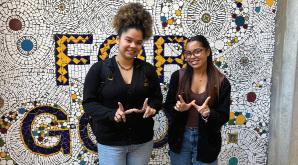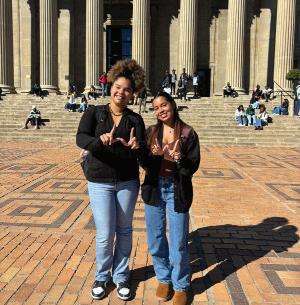






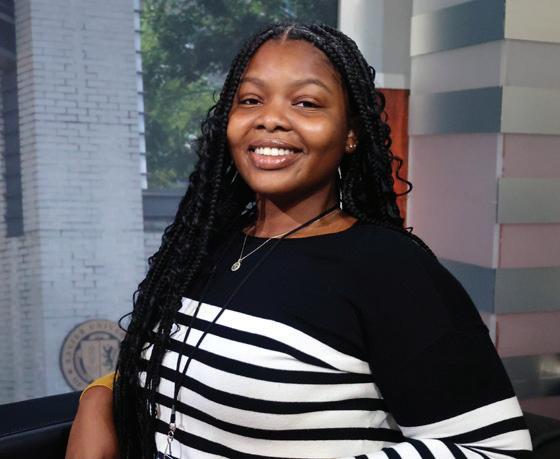
by Trinity Johnson Editor-in-Chief tjohn110@xula.edu
Dear Readers,
As we usher in this Special Herald Anniversary edition of The Xavier Herald, we are honored to commemorate not only the monumental milestone: the centennial celebration of our illustrious university, Xavier University of Louisiana, but also, we celebrate 100 years of student journalism. For 100 years, our student-run newspaper has been a steadfast pillar of information, expression, and community engagement, reflecting the evolving narratives of each generation.
The Herald’s journey began in 1925, the same year Xavier started offering college-level courses. The founding edition, known as La Cigale
– French for “The Cicada” - made its debut on April 1, 1925, with Paul Aubry serving as editor-in-chief. This title was reflective of the university’s rich cultural heritage and the cicada’s symbolism of voice and community. But in 1928, to more closely align with the university’s identity and mission, the newspaper underwent a significant transformation, adopting the name we all know so well today - The Xavier Herald. This change marked the beginning of a new era, reinforcing our commitment to serving as the authentic voice of Xavier’s student body.
Throughout the decades, the Herald has been more than just a publication; it has been a mirror reflecting societal shifts, campus developments, and the dynamic spirit of Xavier’s community. It is the most prominent place for student voices. Students wrote passionate dialogues about the Civil Rights Movement, such as in the November 1959 edition, which highlighted injustices within American democracy - issues that remain relevant today. Continuing this tradition, The Herald has fostered critical discussions on social justice, providing a platform for students to voice their perspectives, challenge norms and inspire change.
Our Centennial Year is not just a time for reflection but also a
celebration of excellence. Recently, The Herald has garnered accolades, being recognized as the third-best college newspaper in the South for 2022 during the Southeast Journalism Conference. This recognition is a testament to the dedication, passion, and hard work of our student journalists, who continue to uphold the legacy of those who came before us.
As we celebrate this 100-year journey, we remain committed to the principles that have guided us: integrity, inclusivity, and the relentless pursuit of truth. The Herald will continue to evolve, embracing new digital platforms and technologies, but our core mission remains unchanged - to inform, engage, and empower the Xavier community.
We extend our deepest gratitude to our readers, contributors, and alumni for being an integral part of this remarkable journey. Here’s to a century of journalism and storytelling and to many more editions ahead.
With gratitude, Trinity
Johnson Editor-in-Chief
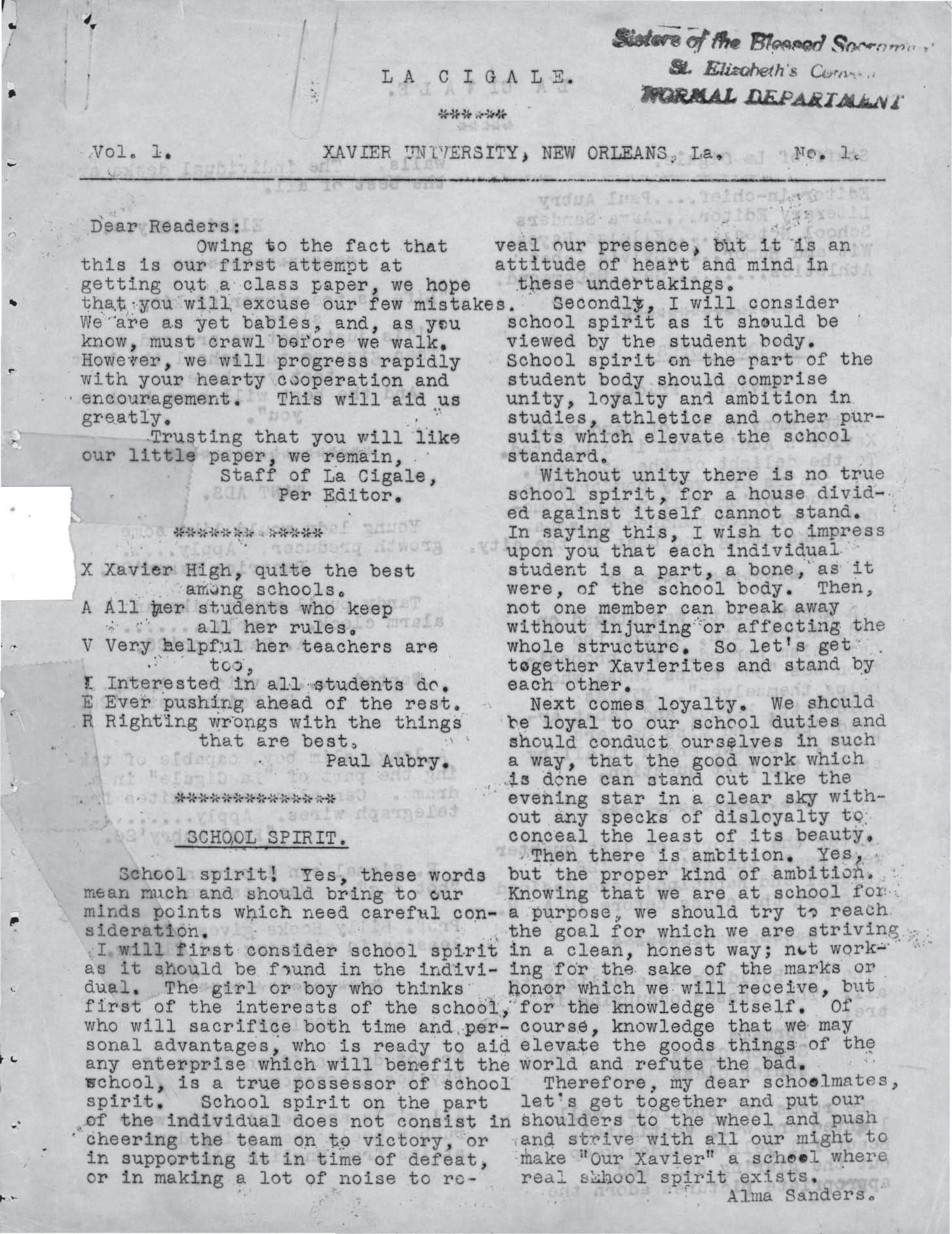
summer 2025
Editor-in-Chief: Trinity Johnson
Assistant Editor: Ivanna Washington
Managing Editor: leah clark
Sports Editor: Jayvon Watkins
Photo Editors: ashton broden, daelyn house, rockey pratt, jayvon watkins
Staff Writers
deon arnold
Youma Diabara
mylah joseph
Lillian Nero brynnan smith kennedy wells
Guest Writers
professor ron bechet professor varsha gusman professor gregory lee alumnus brice miller
Page Designers
Trinity Johnson
Leah Clark
Cover Design
Ivanna Washington
Special Thanks to Xavier University of Louisiana, Archives & Special Collections
Faculty Advisor: Dr. Quincy Hodges qhodges@xula.edu
Staff advisor: ms. Annie Johnson ajohn211@xula.edu
Department head: Dr. Shearon Roberts srobert7@xula.edu
PRSSA Advisor: Dr. Nia Mason nmason1@xula.edu
HERALD CONTACT INFORMATION
Herald Office: Xavier South, 112B 504.520.5092 Email Stories: herald@xula.edu
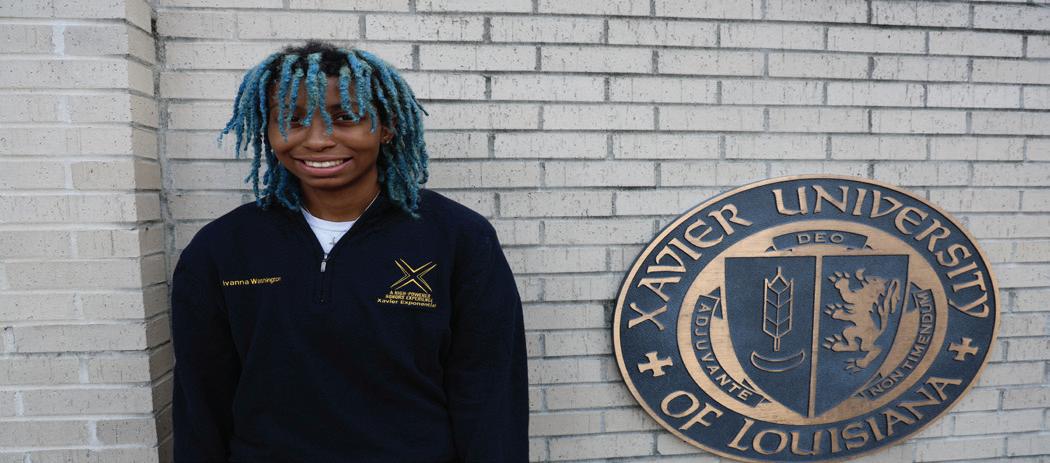
xavierherald.com
what’s new around campus: buildings, legends, and parking!
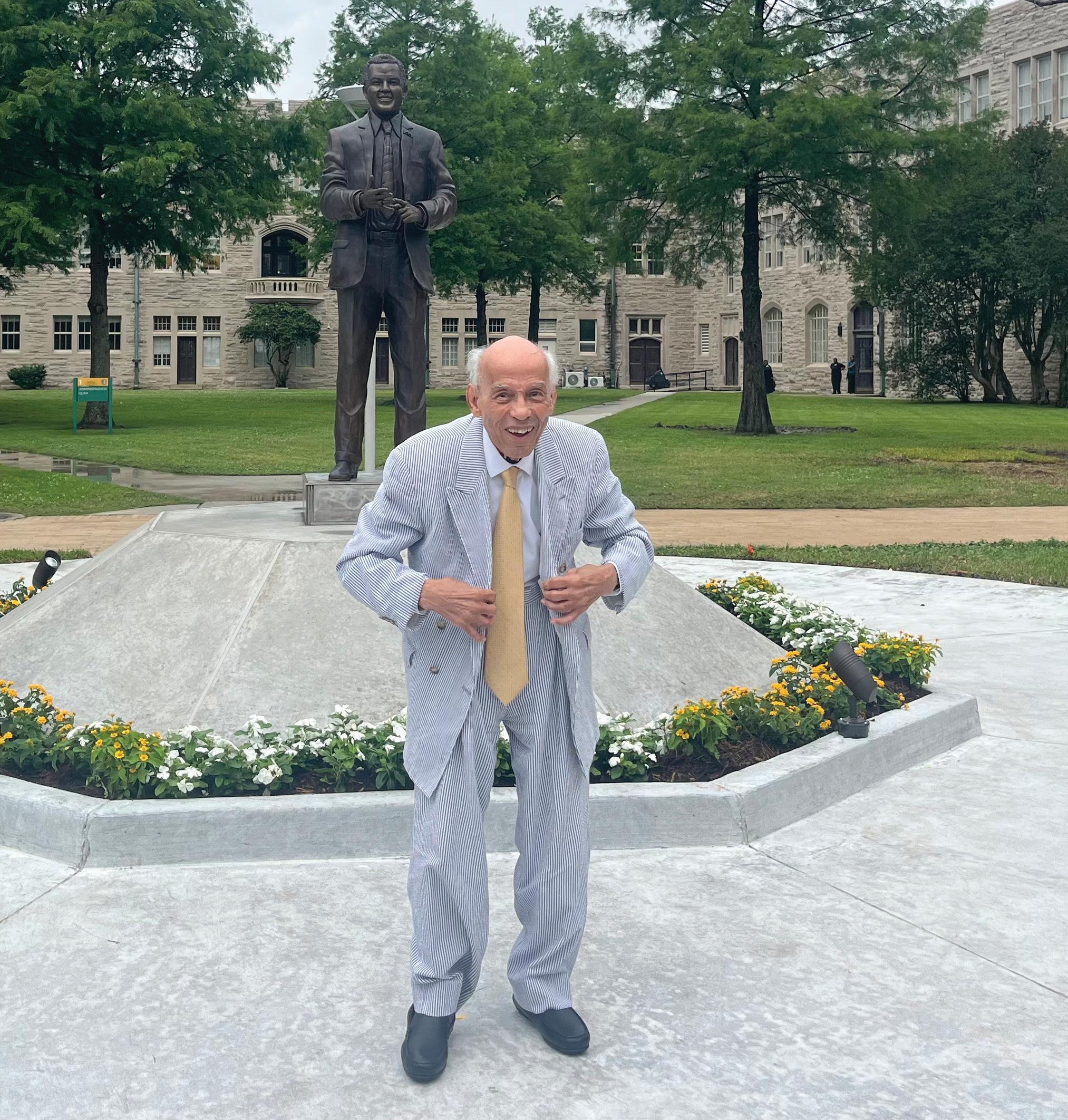
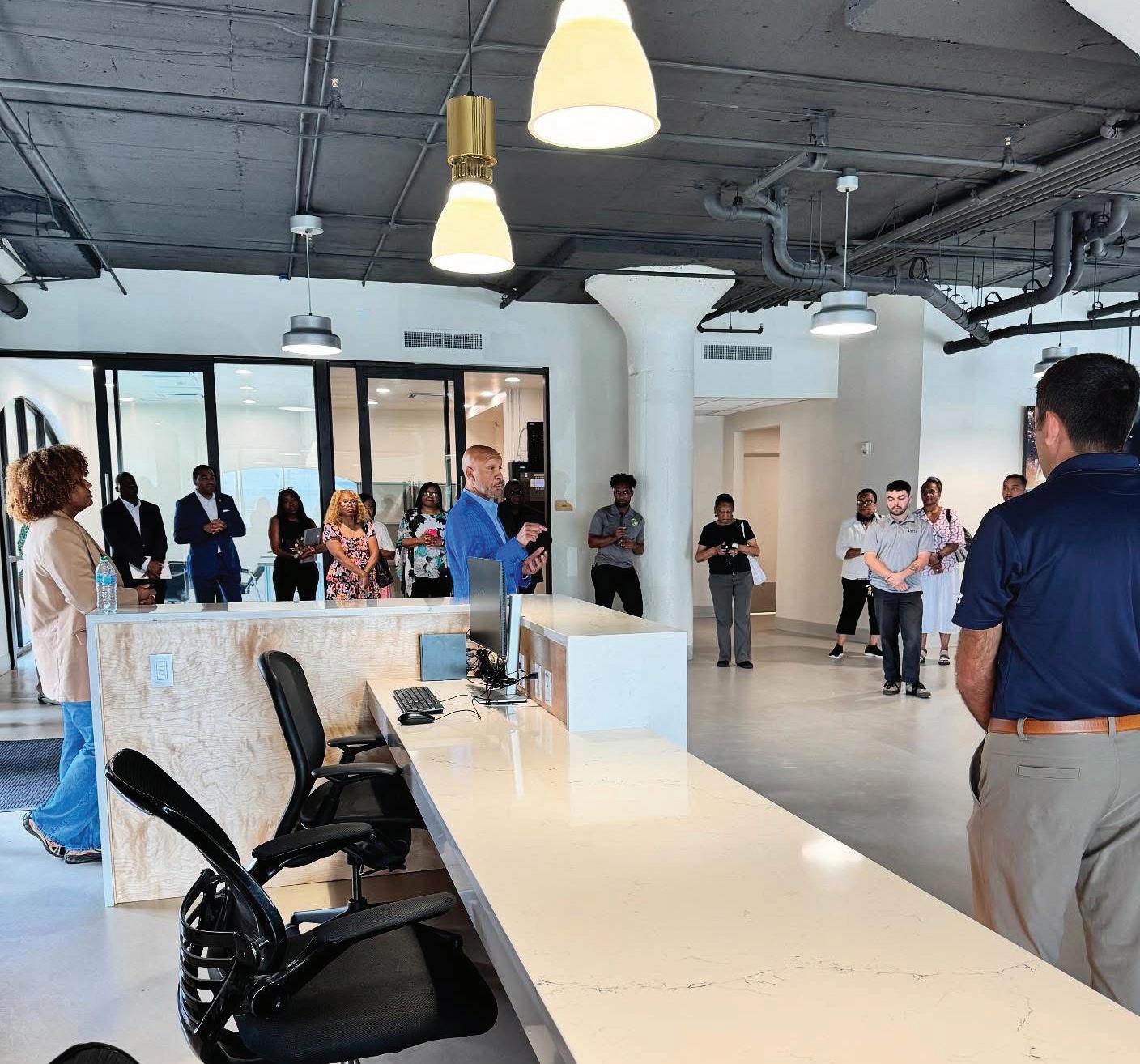

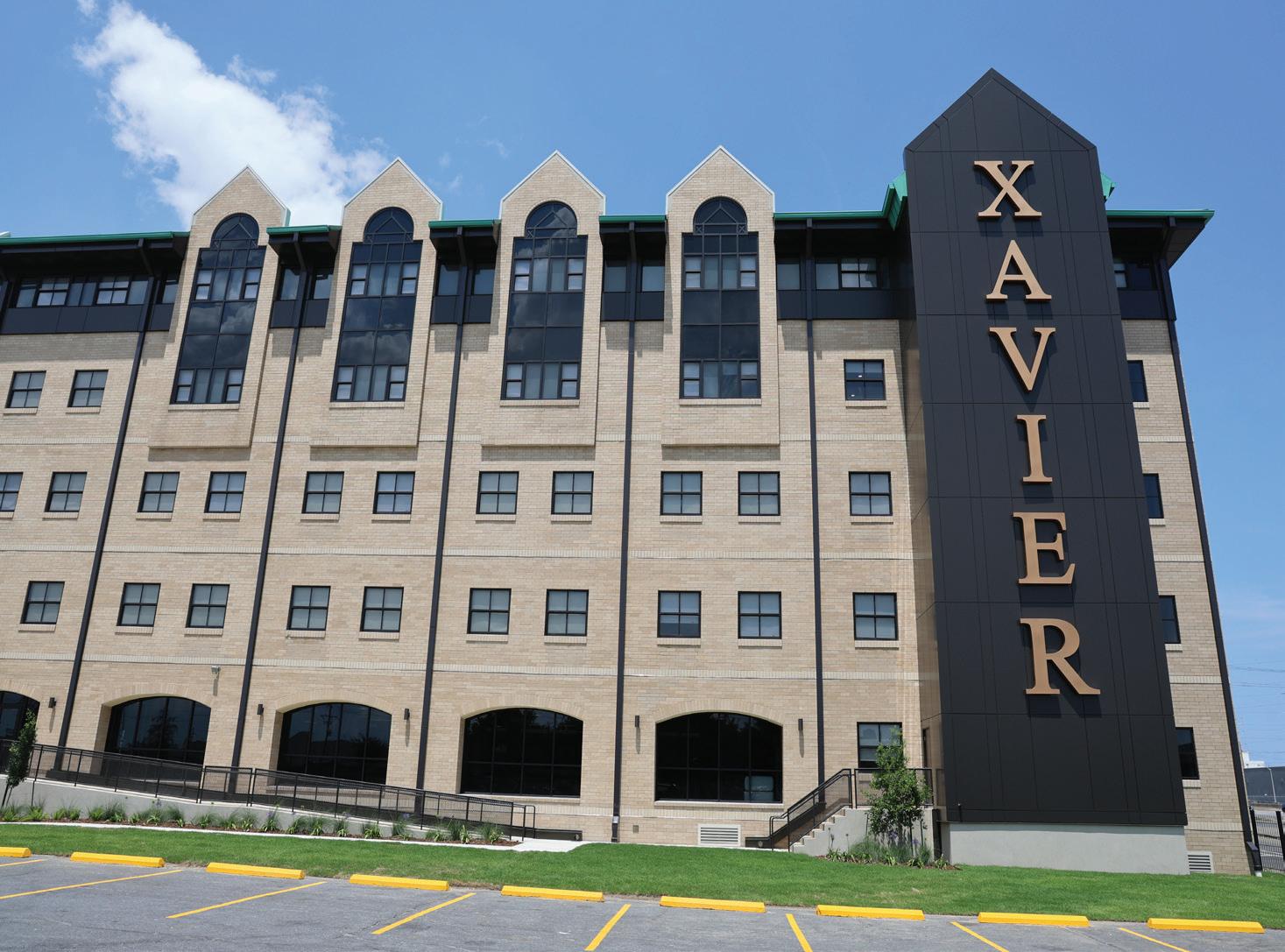
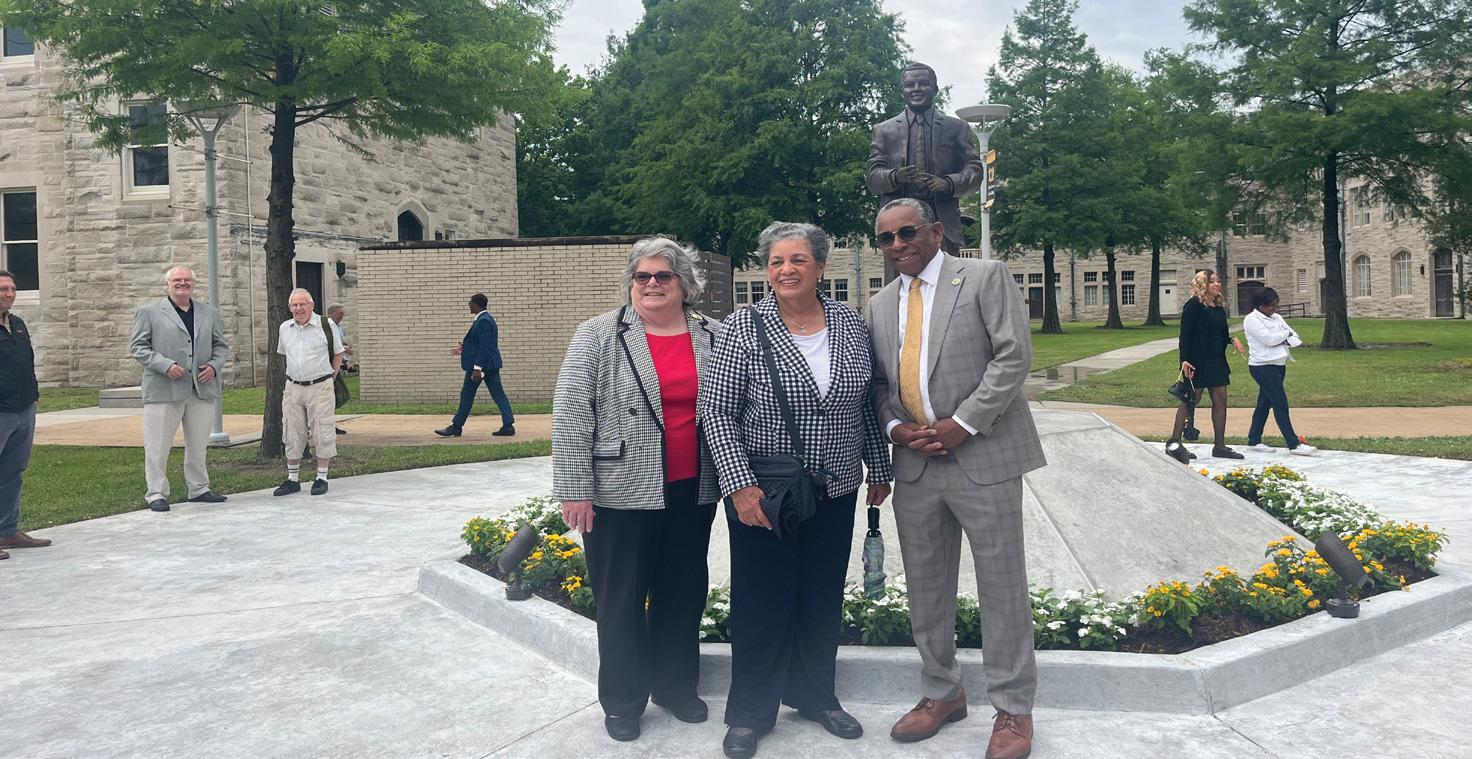
campus news round up from staff reports
Xavier University made some new additions to campus. Students and faculty will be greeted by several new or updated developments.
A bronze statue honoring President Emeritus Norman C. Francis was unveiled in front of the chapel on May 9, 2025. Construction started on the
South Clark Street parking lot. School officials sent an email Monday, July 28 announcing the South Clark Street Parking Lot closure, and that motorists could park in the adjacent parking garage. A new housing hall is being built in the lot’s place. The remodeled dorm expands
spaces for students with new common areas and study suites. To accomodate drivers, Xavier opened the parking garage on South Clark street.
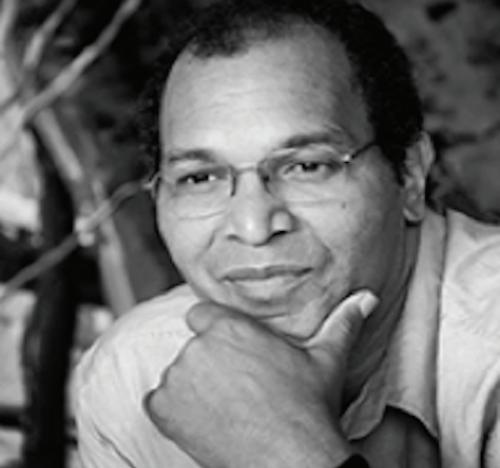
by Ron Bechet Guest Faculty Column rbechet@xula.edu
The fall semester, 2005, Xavier University had the largest freshman class that anyone could remember. There were about 1,000 freshmen, and about 20 of them were art majors, our largest number. Our first annual faculty meeting was filled with excitement and full of anticipation of growing the department. We had lively discussions about adding classes for freshmen and how we needed to plan for the future in this growth trend as we began our first week of classes. We were very excited because we had actually begun developing and had moved into parts of the Art Village. We had two buildings that were actually in use and were planning another two. We had a faculty that was excited and actively looking forward to developing the curriculum based in the art department’s great history for a greater future. We had to add courses to accommodate

the number of freshmen.
Our faculty at the time consisted of John Scott, Mapó Kinnord, Janelle Marsalis, and Muffin Bernstein. I was the department chair at the time. After our first week of classes and preparation in my case, we prepared for an opening exhibition of Steve Prince, an alumnus of the department.
Our preoccupation with the beginning of the semester and
other activities took us away from the rest of the world. We knew that there was something brewing in the Gulf, but of course, we were so busy trying to get everything together, so we continued, with tunnel vision. I had never left the city because of a storm, including Betsy and Camille. Being a native New Orleanian, I felt no fear, it was just part of our lives in the fall.

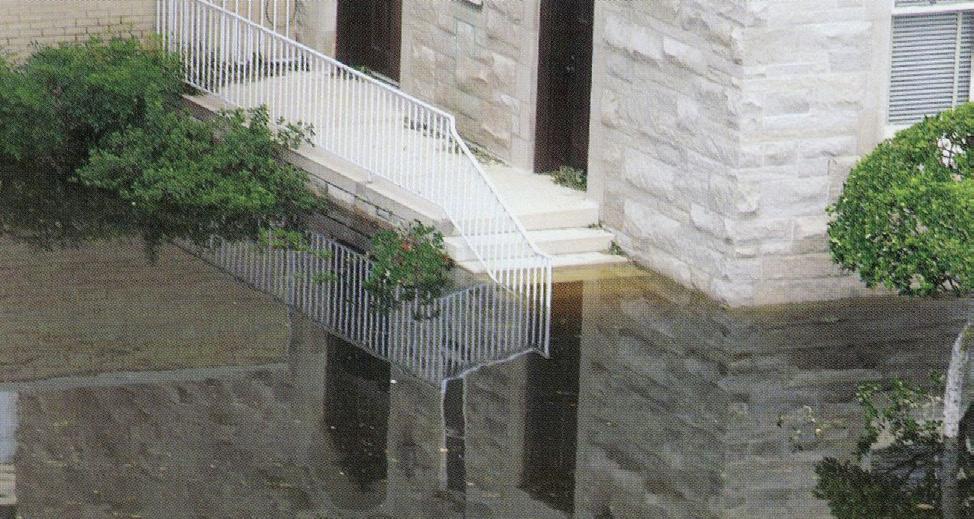
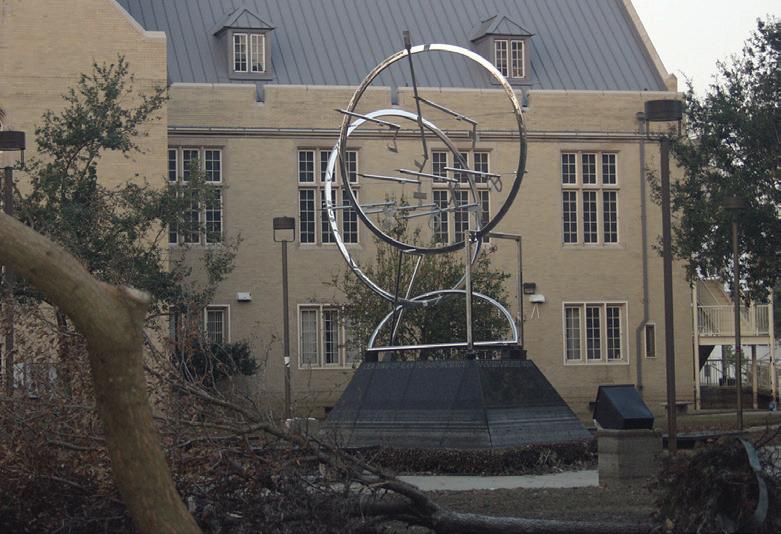
Obviously, this storm was different. We had storm plans for the department that the administration annually asked for. After Steve Prince’s exhibition in the gallery, in the library, some of the faculty took him to dinner. There, we saw it on the screens. It finally hit us.
There was this huge, massive storm coming through the Gulf like a bowling ball headed for the pins, and we were the pins. Steve Prince got himself together and was able to leave immediately after dinner and go back to Virginia. The rest of us started to prepare for what was coming and we were able to get ourselves moving and going into our plan for hurricanes.
We had to follow the plan.
Get computers and major equipment away from where they might be destroyed, but we had no idea what was coming. We all just thought that we were going to be leaving for a weekend, and we’d come back like we had usually for other hurricanes. We all emailed our students and gave them their assignments and told them to check emails over the weekend. Friday, we prepared
and followed the plan and were told by the administration to make preparations and to make sure we had contact information and to leave our contact information. Classes were suspended until the emergency was over. Sandbags were placed on all buildings on Friday and Saturday. The University Center was just built at that time and just earlier in the Spring Semester of 2005 the art collection was newly framed and hung impressively in the U.C. Some of the work was still in the process of being placed. I went to the U.C. before leaving the campus to make my personal preparations but the doors were already sandbagged. Some of the art was still leaning on the walls.
On that Friday, we basically made our plans and contacted our students and had them to understand what was coming and what we needed to do to make that work for our courses. I told mine to take their materials with them because they may need to do their assignments while they were away. So, that Saturday we all decided what we were going to do, just thinking what we and our students needed to have while we were going to be away for the few days that we would be out for Hurricane Katrina.
We told each other we will see you soon, as we each completed our preparations in our spaces, took each other’s phone numbers and were able to get out of the city. My wife and mother convinced me to go to Houston. Early Sunday, my wife, daughter, mother
and two dogs caravanned for Houston. It took 12 hours to get to Houston. We arrived there very early on Sunday morning and at that time the hurricane was ravaging through the city and headed for Waveland. We immediately joined my son watching the
news once we got to Houston. The next morning, I woke up early and decided to work on my Design class assignments while looking at the news. The storm had passed the city. I had actually brought with me my computer and my syllabus. I needed to reconfigure for the
new Design class that I had to take on. Then the news of the 17th street canal levees broke. A frightening experience to watch later of all that water pouring out of the breaks. I still was not so concerned because it was just one break and then as we heard the 9th Ward and
the London Canal, where Dr. Michael White lived. We were caught up in a no man’s land, not knowing what was going on in the city, much less Xavier. As the days went by and the news trickled in, we could not reach anyone in the New Orleans area. There

was no email, later some text came through. I felt isolated and confused. At that time, we had no home, no jobs or schools and only had what we managed to bring with us. I couldn’t reach John Scott or any colleague. I got a cell phone for the first time as I was using a landline. Eventually I found John Scott also in Houston once I got a cell phone. We all had to find another way to use the internet and an alternate email address and eventually gaining contact with the university. After some time, we were able to reach Xavier through email. We all got an alternative email, and we were able to reach out, and Dr. Anil Kukreja was able to reach out to us, as he was actually in Houston as well. He was trying to organize Xavier students in Houston. We still didn’t know anything about the campus or what we were to do.
Soon, we heard from a news report that Dr. Norman C. Francis and his team committed to being back on campus in classes in January, that the fall semester would take place in January and that the spring semester would
take place that summer. We did return. Professor Mapó Kinnord and I returned full time and Muffin returned part time. The campus was usable, but not all students returned so not all faculty were brought back or all classes reinstated. We did not need that extra Design class.
We all had to rebuild Xavier, our homes and our lives. I was able to reach out to two students while we were in Houston. Perrin Green and Jamie Jones. Jamie Jones and Perrin Green were able to take classes and eventually finish their work for their Xavier courses through the kindness of Texas Southern University.
My wife and I went to downtown Houston to the Astrodome area where they were bringing in people from New Orleans just trying to help, just trying to find maybe a cousin or an uncle who we hadn’t located. I saw Xavier students there volunteering and helping people get settled.
I’m sure there are many stories like these that students share. While still stranded in Houston, they were able to complete their work. They were seniors and able to do
their graduating exhibition while in Houston.
Through the kindness of others, and so many other people, Xavier was able to rebuild and help others. For a time in the fall and spring semester of ‘05 and ‘06 Dillard University art classes were taught sharing Xavier’s Art Village. Through the strength of our administration, we were able to be the first flooded campus to return. Faculty and staff did what they needed to do. Some lived in trailers on campus or with other friends. The kindness of so many from around the world that supplied materials, money and moral support help keep us focused and sane. I will always feel
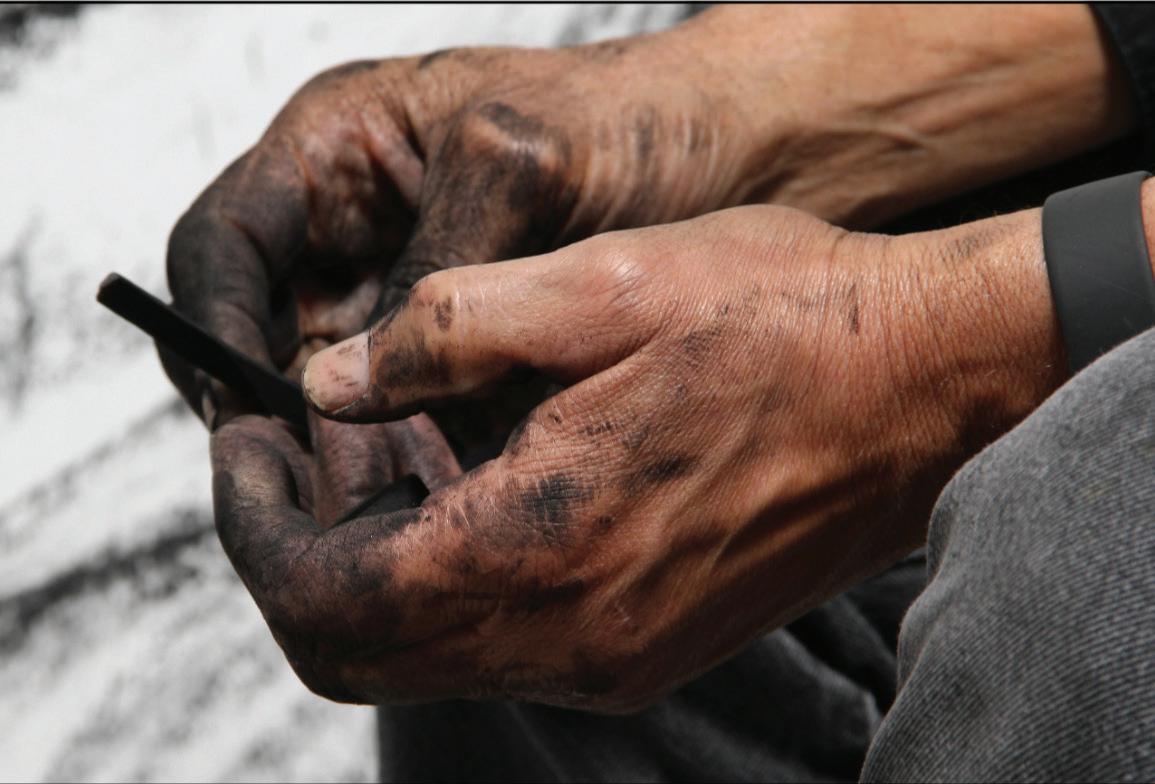
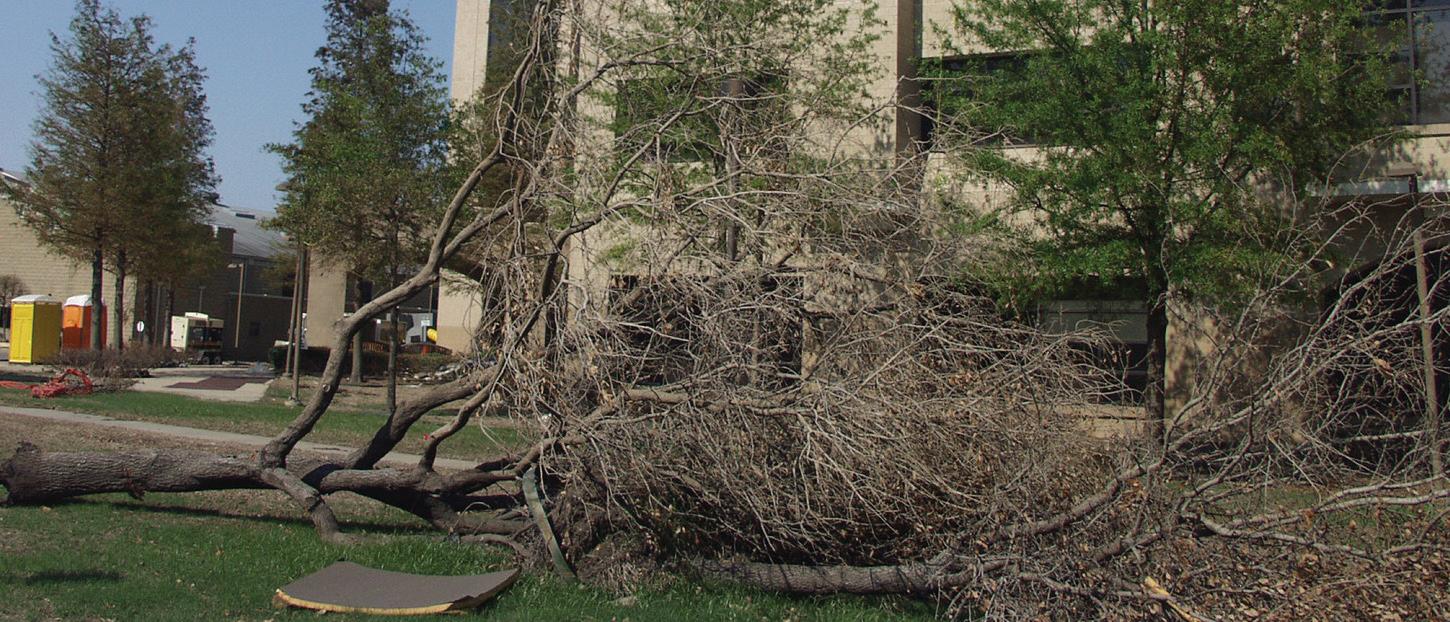
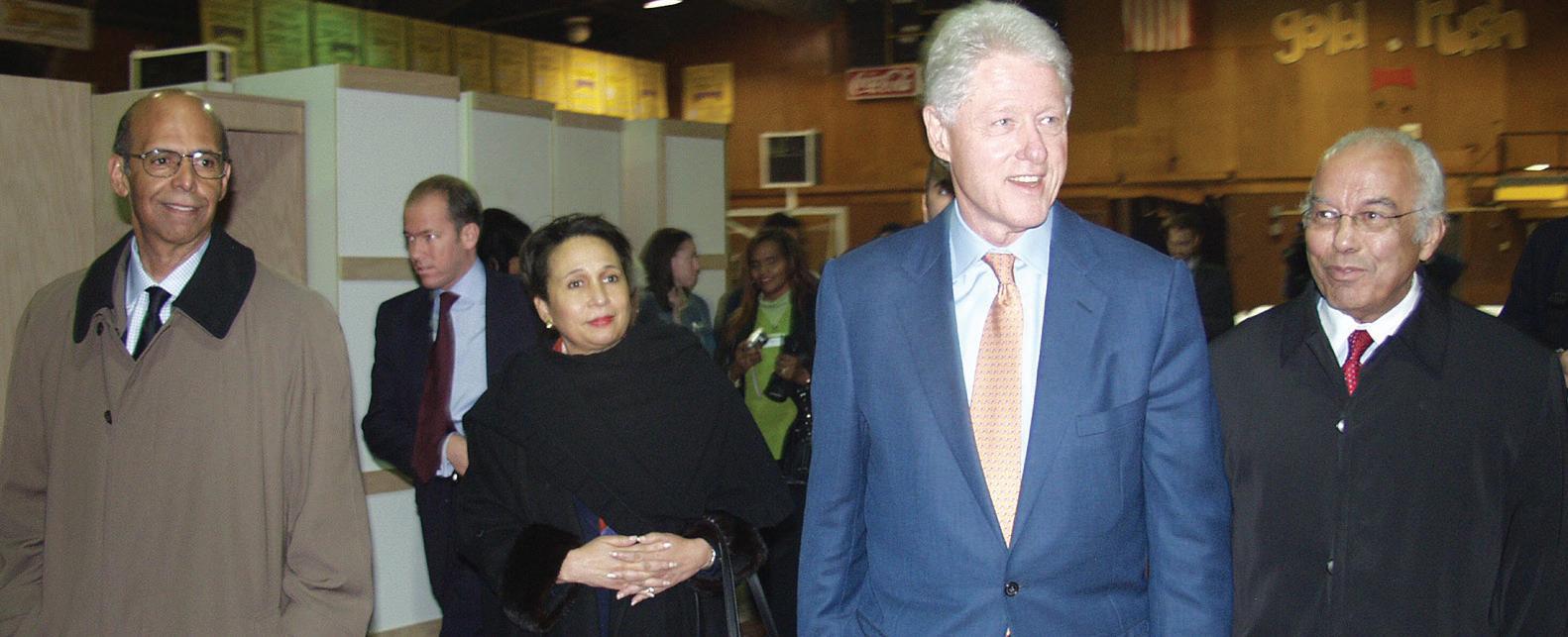

by Varsha Gusman Guest Writer vgusman@xula.edu
In August 2005, I was a senior Biology Pre-Med major at Xavier University of Louisiana and a proud native of New Orleans. Although my family and I had weathered many storms, Hurricane Katrina was different.
I was living in St. Martin De Porres Hall, preparing for the school year and never imagining
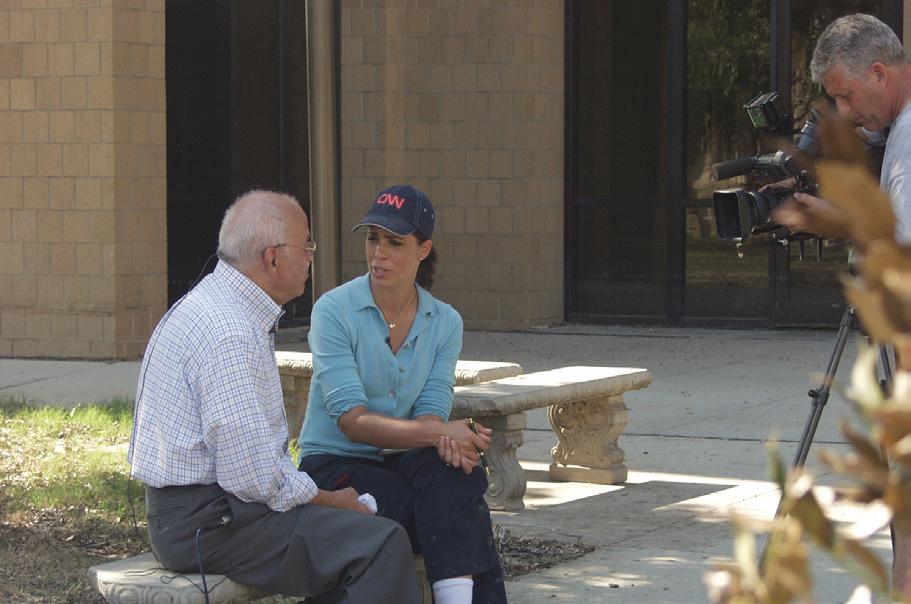
the devastation to come.
Xavier’s campus, my home, my church on Caffin Avenue in the lower ninth ward, and my high school, Immaculata, were all under water.
Everything familiar was lost. That fall, Baylor University graciously welcomed displaced Louisiana students, offering free tuition, housing,
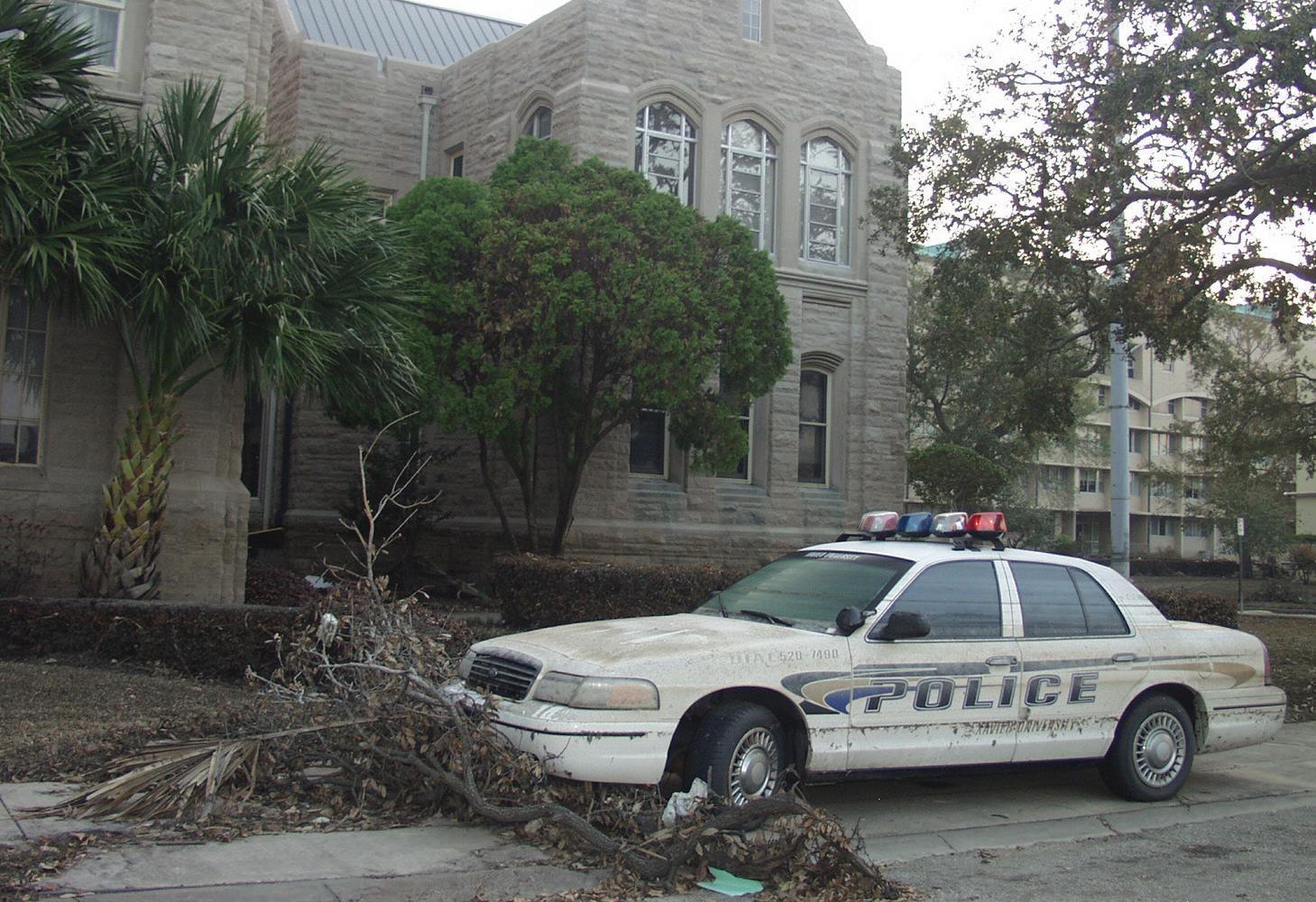
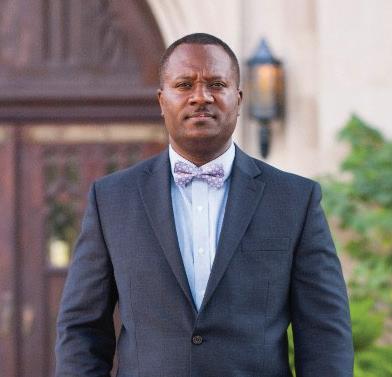
by Brice Miller Guest Writer iambricemiller@gmail.com
A CNN reporter interviews former President, Norman C. Francis, about Xavier’s plans following
Photo courtesy of Library Archives
and meals. The generosity of strangers was humbling. I returned to New Orleans three weeks after the storm and saw destruction everywhere. It was heartbreaking. Yet, our community leaned on one another. In January 2006, we returned to Xavier. Under the extraordinary leadership of Dr. Norman C. Francis, the campus reopened. The Gert Town neighborhood remained deserted. Xavier stood strong and was an island of resilience and purpose.
Campus police had risked their lives to evacuate over 350 students, while my father-inlaw, Sheriff Marlin Gusman, was working tirelessly to evacuate prisoners. When we returned, some dorms were renovated, others were still in repair, and trailers housed many students and faculty. But we were back, and every open door felt like a miracle.
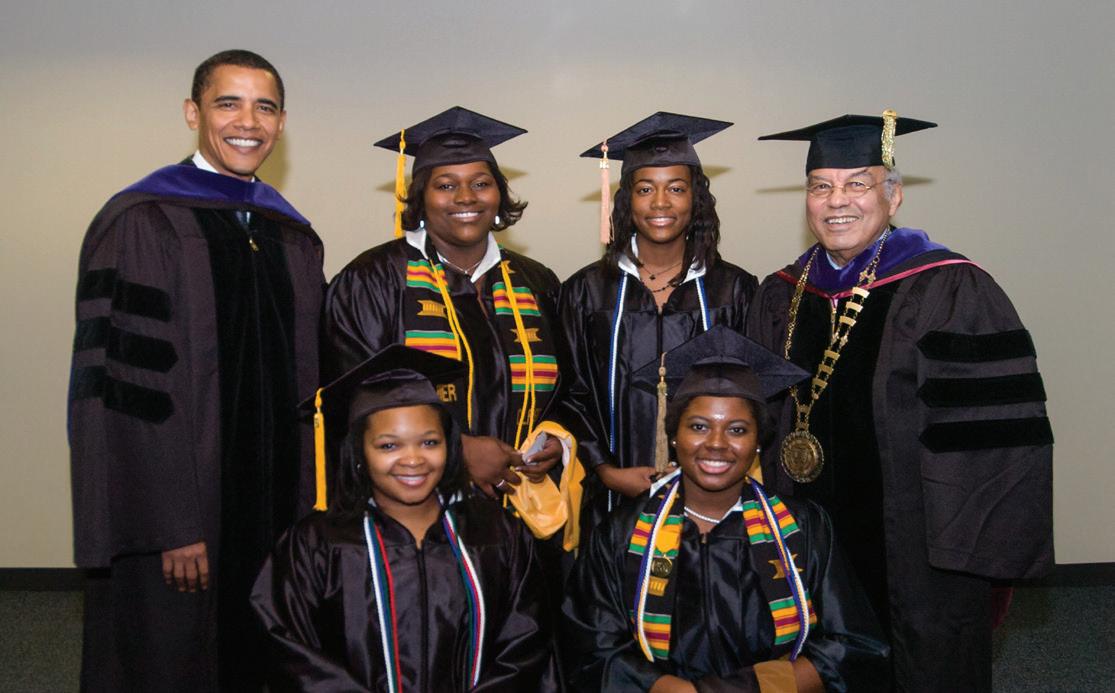
Because of disrupted coursework, our senior class graduated in August 2006 instead of May. I will never forget our commencement speaker, then-Senator, President Barack Obama. President Obama reminded us that while we faced one of life’s greatest tests through the storm, there will be many other tests throughout our lives. President Obama challenged us to carry the memory and lessons of Katrina with us, not as a burden, but as a source of strength and purpose. Whether through how we care for loved ones, raise families, respond to injustice, or give back to our communities with compassion, integrity, and service.
Looking back, Katrina changed my life. It tested our city, our families, and our
dreams, but it never broke our spirit. Being part of Xavier during that time reminded me that resilience is rooted in love, community, and purpose. We didn’t just come back; we came back stronger.

Alumni Hurricane Katrina Reflection: blessing in disguise
Twenty years later, Hurricane Katrina remains the most impactful unplanned pivot of my life.
With all the upheaval, I was focused on three things at the time: providing the utmost sense of normality for my family, not letting

the devastation and things I could not control break me, and I was determined to complete my master’s degree.
My professors at Xavier University of Louisiana provided the best possible guidance and focus. They were truly pillars of strength and support during the most challenging time of my life. Through our weekly emails, a focus on assignments and professional development, and “check-in” phone calls, they ensured my professional and academic focus was ascertaining that degree. And together, along with the unwavering support of my amazing wife, we did it.
Earning my master’s degree shifted the entire trajectory of my life. I transitioned from music and cultural education into the fields of intercultural communication, diversity, equity & inclusion, and community engagement. My work in community engagement at the University of Alabama (UA) led to a plethora of awards, which led to a wealth of opportunities, including consulting. The exposure led to administrative offers at UA, which required a doctoral degree.
Today, I’m not only the first college graduate in my family, I’m also the first to earn a Ph.D. As devastating as Hurricane
Katrina was for my family and I, it was the most profound pivot in my life, and Xavier University of Louisiana played a monumental role in that transformation.

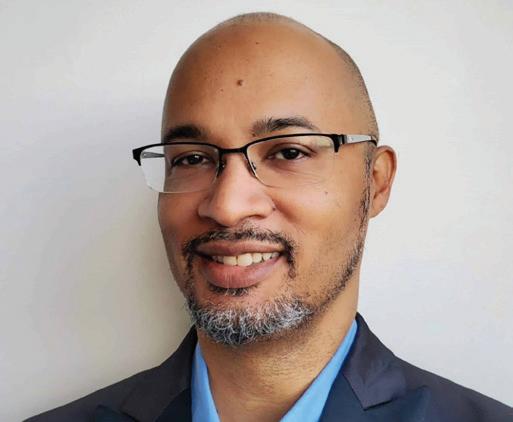
Gregory Lee Jr. Editor-in-Chief (1995-96) ghlee@loyno.edu
I remember it like it was yesterday.
One day during my senior year as editor of The Xavier Herald, I walked into a courtroom with my fellow editor, Mary Webb. As we entered, Xavier President, Dr. Norman C. Francis, and another administrator looked our way with surprise. Dr. Francis turned to us as we were seated and asked how we found out about the case we were covering and whether we should be in class. We had our own sources, who shared the court date and subject with us beforehand and between the two of us, we had enough days to ditch class to cover this case.
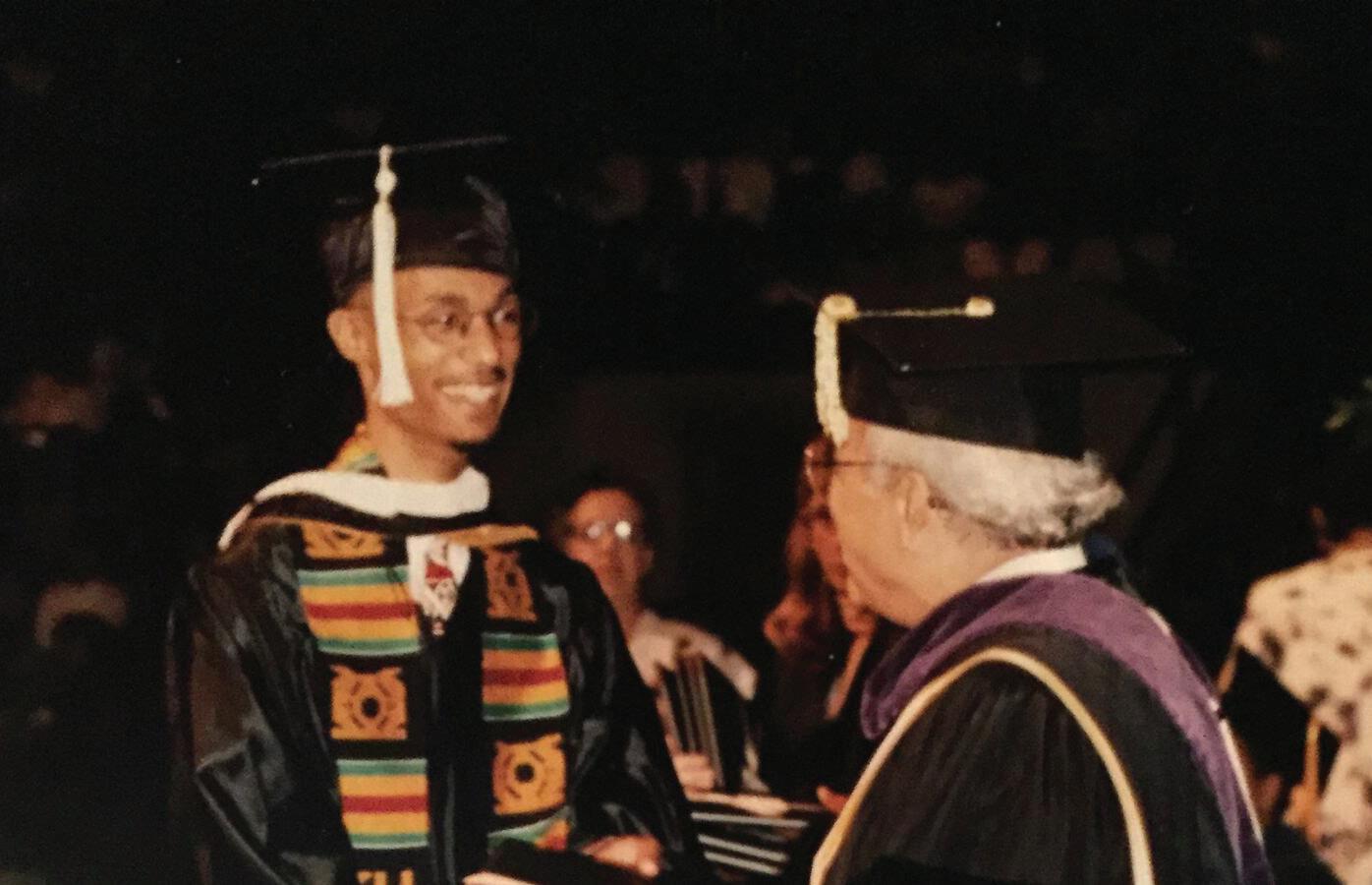
The court case was a tenure review of a professor and his scholarly work. It was a dull case, but that was not the highlight of The Herald’s coverage. That came when the case ended, and The Herald was preparing to post its frontpage story.

As we prepared to publish, we received word that we could not publish the story because Dr. Francis argued that since he was technically the paper’s publisher, it would violate the school’s confidentiality of the case results.
It was the first time, to our knowledge, that a Herald story was censored.
The Herald was often at the forefront of pushing boundaries on campus, covering controversial issues like religious demographics or exposing the inadequacies of health services. Our responsibility was to inform and provoke thought and, when necessary, challenge the status quo.
I got called to Dr. Francis’ office many times. One conversation I remembered vividly. He would always note that in his past life, he was an attorney. He understood media, media law, and the like. So, he would challenge me on the stories we did on campus. During this particular time, I mentioned to Dr. Francis this school is known to be a science school. These students perform experiments in the lab every day. Like those
students, the campus is our lab as student journalists, so we can prepare for careers in this field. If you don’t like how we do our jobs, perhaps the major should go away.
That work and the work of my predecessors led Xavier to become the first HBCU to be enshrined into the Associated Collegiate Press Hall of Fame in 1994.
Little did I know, those challenges on campus prepared me for my 30-year career.
The lessons I learned on Xavier’s campus helped me craft a career in service, activism, and dealing with the challenges faces by people of color in America’s newsrooms. It was why I became a fierce journalist in the face of ensuring our stories were being told equitably.
I challenged newsroom executives on why diversity matters in our building. It led me to become the President of the National Association of Black Journalists. This is why, despite our industry’s significant challenges, I continue to train the next generation of journalists to be storytellers. Today,
our industry is facing unprecedented challenges. The First Amendment is on the line. Our freedoms are on the line.
The Xavier Herald taught me how to face challenges and pursue the truth, no matter how difficult those stories were for me or the university. We, as journalists, must uphold the truth. If we are to confront the challenges of today, our university must support and arm our students to study to become the next Ed Bradley or Carol Simpson. Just as we were taught to face challenges head-on in the halls of Xavier, so must the next generation of journalists continue the fight for truth and equity.
Gregory Lee was a student journalist and editor-inchief on the student paper from 1993 to 1996. He had a 30-year journalism career at the Times-Picayune, The Washington Post, The Boston Globe, The Sun-Sentinel, The Athletic, and Front Office Sports. He is now a journalism professor at Loyola University of New Orleans.
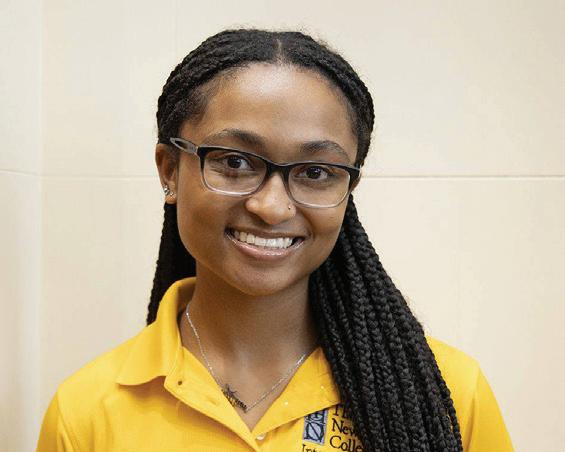
by Lillian Nero Staff Writer lnero1@xula.edu
Global learning is expanding at Xavier. It is a part of the University’s mission and is increasing among Xavierites. Recently, 12 students were awarded the Gilman International Scholarship . The 12 scholars were twice as many awarded Xavier students than the previous year, marking a new record. To continue increasing the number of students studying abroad, Xavier’s Office of International Education (OIE) is currently promoting an initiative to address barriers in the study abroad process.
“Our office got a grant from the Department of State in 2022, and one of the two goals was to increase our percentile in male students [studying abroad],” said Dr. Yu Jiang, the director of OIE.
By the end of the grant period, Dr. Jiang’s office was able to increase the percentage of male study abroad students from 10-percent to 23-percent.
“I hope we can sustain that momentum,” Jiang said.
There are three options when deciding which program is best for a student. They can do a faculty-lead trip, study with another university (whom Xavier has a direct partnership/affiliate program with), or through third-party organizations.
“Understandably, students trust the professors,” Jiang said about faculty-led trips.
“They know that they can trust the quality and the safety when the faculty member takes them abroad.”
In addition to faculty-led trips, Xavier currently has a direct partnership with University of Alicante in
Spain, and they offer affiliate programs with the University of Manchester in the United Kingdom.
Direct partnerships typically take place during the fall or spring semester, while affiliate programs can take place during the summer, offering some flexibility for students who are concerned about the timing of the trips.
Mary Spinner, a junior biology/pre-medicine major, said she is interested in studying abroad but has been
“I would have to manage my schedule better.”
Spinner’s apprehensiveness highlights a few obstacles that deter students from participating. Jiang and OIE shared they are aware of the roadblocks students face and are actively working to ease these concerns.
“The number one hurdle our students are faced with is financial,” he said “Adding travel fees with housing, program fees, transportation and cultural excursions, the
Jean Baptiste Medjo Me Zengue, a senior, accounting major, went through the affiliate route, conducting his study abroad experience through the Knowledge Exchange Institute (KEI).
“It was a little scary at first,” he said. Medjo Me Zengue spent the spring semester of 2023 in Paris, France and attended The American Business School of Paris.
Medjo Me Zengue was the sole student in Paris with KEI, and the flexibility of
other Cameroonian students and bonded over shared cultural heritage. Many of the friendships he developed are still intact today.
Because of his experience, he encourages students to not put off traveling abroad and explore their options now.
“I think you can find Black people everywhere. There’s no need to be afraid to travel,” Medjo Me Zengue said.
Students interested in study abroad can visit the Office of International Education in
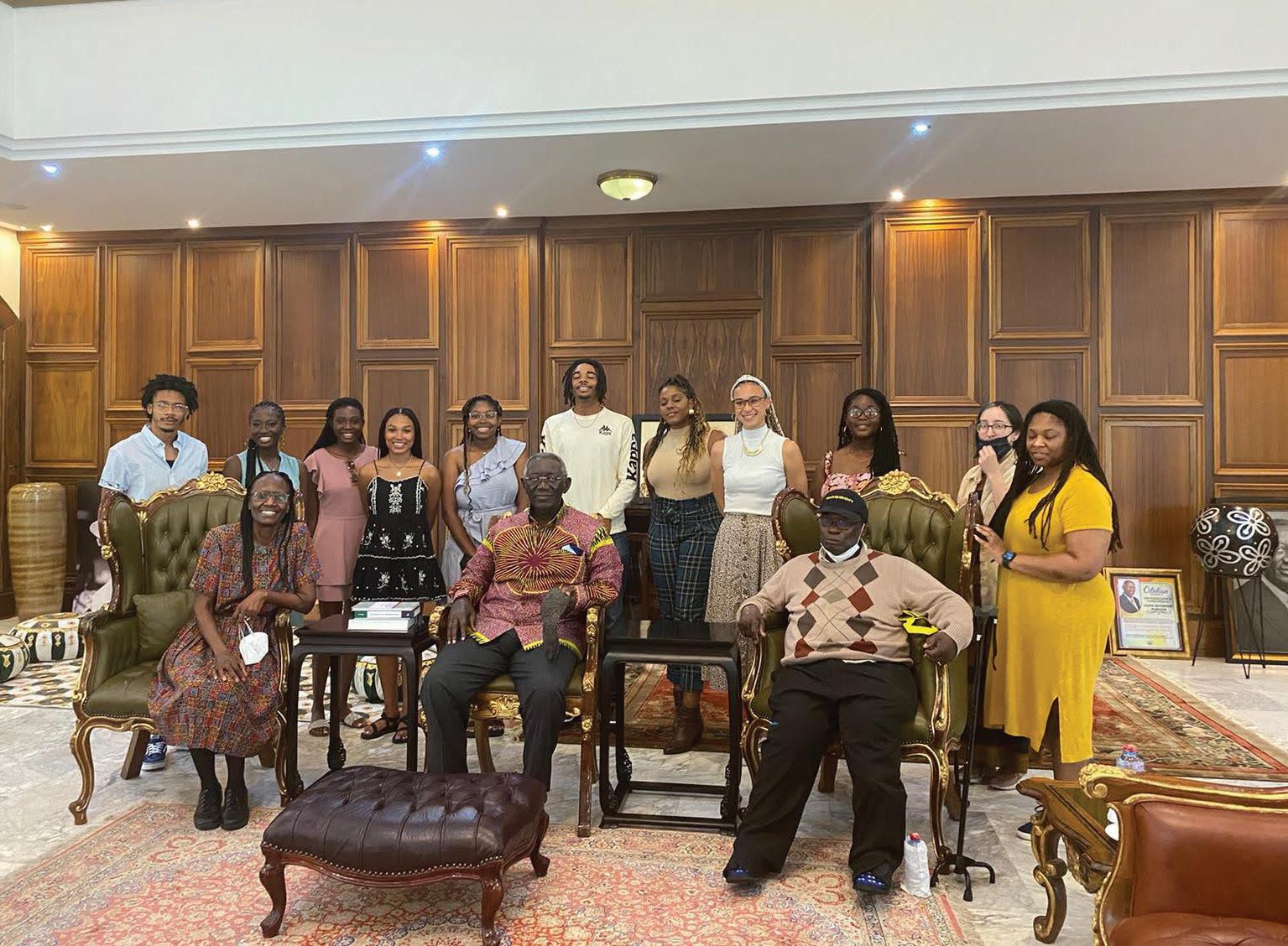
hesitant to begin the process.
“I love to travel. I love to enjoy the actual culture,” Spinner said.
She shared that she was open to travelling to any country but finding the time to complete a program in alignment with her academic plan is challenging.
“My classes are very time consuming, and I have a lot of extracurricular activities that I’m involved in,” she said.
numbers add up.”
Fortunately, the OIE offers scholarships for Xavier students and has various resources for outside funding to help overcome the financial burden. Information about different external scholarships is also available in the office. Solutions to challenges that present itself may be worked out by visiting and talking with OIE staff.
his program allowed him to engage with Parisian culture and to explore the city and find his community of peers. To his surprise, studying abroad really made a positive impact on his health.
“Honestly, it was probably my healthiest semester ever,” he said. “I got my 10,000 steps every day being social and stuff.”
Medjo Me Zengue met
St. Joe’s room 312, between 9 a.m. and 5 p.m. or email international@xula.edu. Students are encouraged to make appointments, but walkins are welcomed.
“By studying abroad, it impacts your intercultural/ cross-cultural skills. To me, it is a very worthwhile investment of your time and financial resources,” Jiang said.
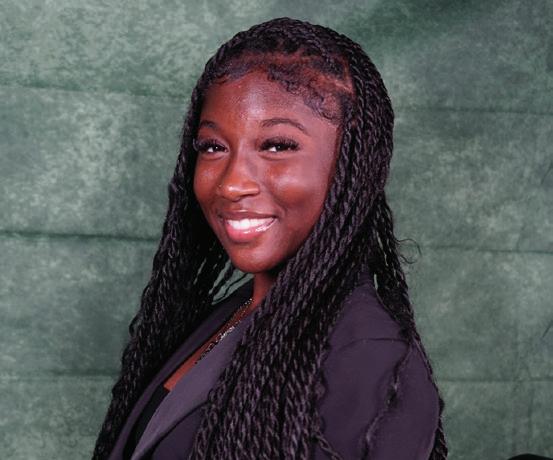
by Sofia McDonald Staff Writer smcdona7@xula.edu
Life as a student entrepreneur while being a full-time student can be fulfilling but also demanding and stressful. During those stressful times, many student entrepreneurs must remember why they started their business in the first place.
“Entrepreneurship takes drive, interest, commitment and excellent time management while remaining focused balancing the full student course load,” said Mark Quinn, the Conrad N. Hilton Endowed Chair in Entrepreneurship and assistant professor and director for Xavier’s Entrepreneurship Institute in the Division of Business.
For Anthony Jeanmarie, a Sociology major from New Orleans who graduated in May 2025, he always had an interest in fashion and entrepreneurship, so it was no surprise when he started his clothing business in March 2024.
“My passion for entrepreneurship and my faith made the idea of creating a Christian clothing brand seamless,” Jeanmarie said.
Jeanmarie is the owner of the clothing brand Born Blessed and the owner of H.I.M which is a nonprofit empowering the voices of tomorrow’s leaders. His entrepreneurial endeavors earned him a full scholarship to attend Columbia University for graduate school this Fall 2025.
“I also noticed a lot of dark, demonic undertones in larger fashion brands, so I was motivated to change and give people the opportunity to blend their faith with fashion with me,” he said.
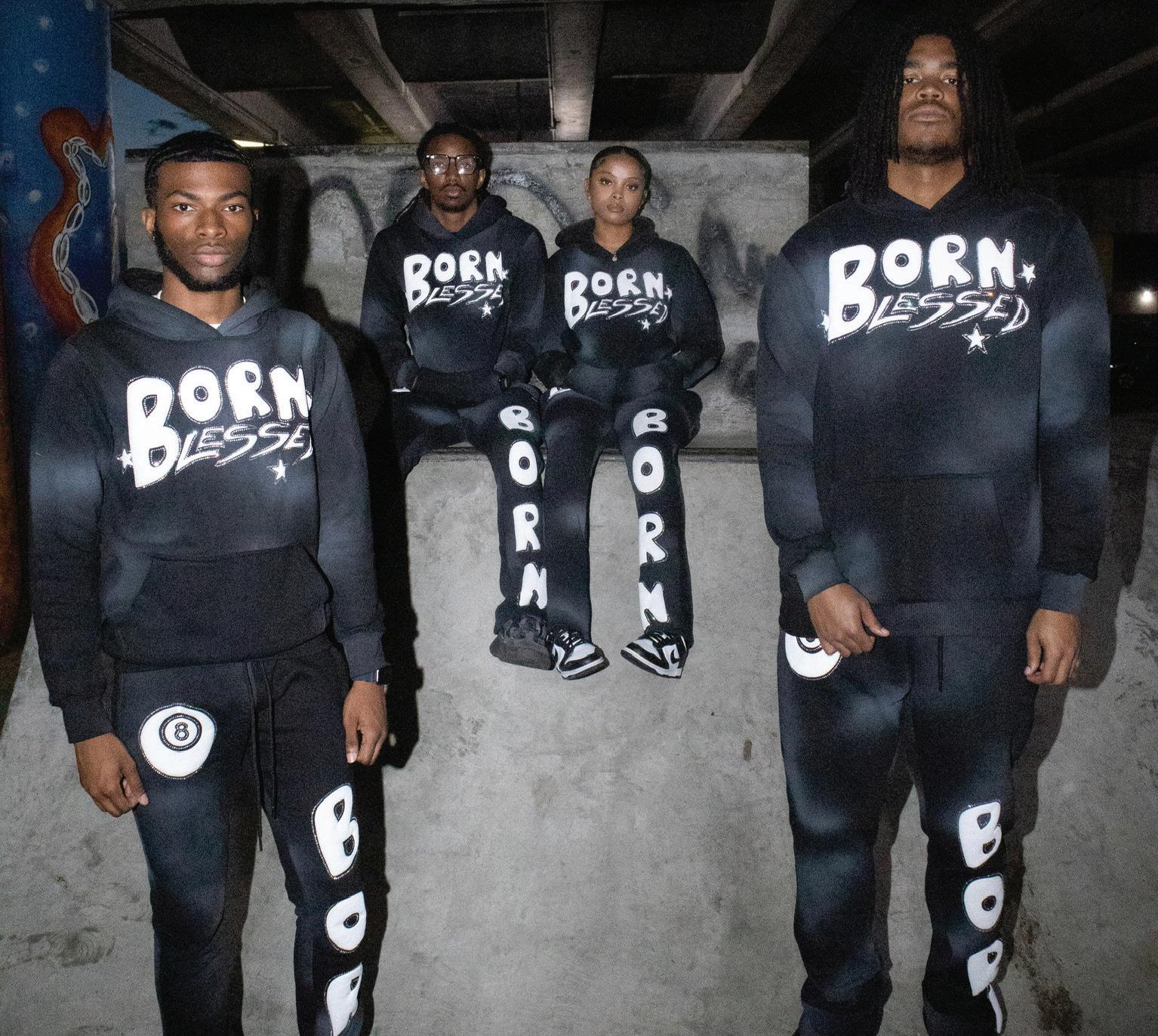
with helping others. He was inspired to give back to his community in a way that helped others continue their education, so he created scholarship from the proceeds from sales from his clothing business.
“I researched that a large percentage of Black college students consider dropping out because of financial stress.
I am blessed not to have that financial stress, but that does not mean that I don’t feel for those who do,” Jeanmarie said. “I feel extremely honored and blessed when I give out scholarships to students. It was on my list of goals before I left Xavier, for sure.”
Scholarship recipients are selected from an application, open to students who attend a college or university in New
Orleans and obtain a GPA of 2.5 or higher. The scholarship is funded by the business profits from Born Blessed and donations from Jeanmarie’s nonprofit organization called H.I.M.
Junior biology major Yalari Trice was a scholarship recipient in November 2024.
“Receiving this scholarship made me feel like I was finally seeing the fruits of my labor,” Trice said.
Jeanmarie’s scholarships are based on community service and leadership. Trice’s involvement in the Student Government Association (SGA), Peer Dean Association (PDA), National Council of Negro Women, Collegiate 100 (C100) and her countless hours of community service qualified her.
hours of community service qualified her.
“I applied for the scholarship to pay off some of my summer school loans and take stress off of me and my parents,” Trice said.
She received a $500 scholarship showcasing how Jeanmarie’s brand is impacting students. The impact Jeanmarie is making is one of the key benefits he is seeing while being a student entrepreneur. Another benefit of being a student entrepreneur is the different assistance available to students.
“Take advantage of all the help that is out there especially at Xavier with all the programs, courses, and use the resources that we offer,” Quinn said.
“Knowing entrepreneurship puts you in a position where
you can be that successful business owner”.
And while there are obstacles that come along with student entrepreneurship, for many it’s proving to be a worthwhile investment.
“My clothing brand has allowed me to practice and showcase my passion and creativity while reaching people from across the country, for which I am forever grateful,” Jeanmarie said.
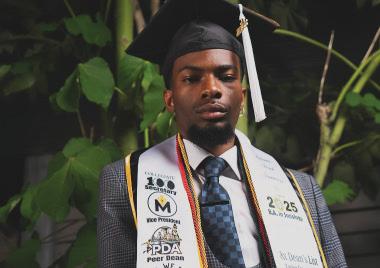
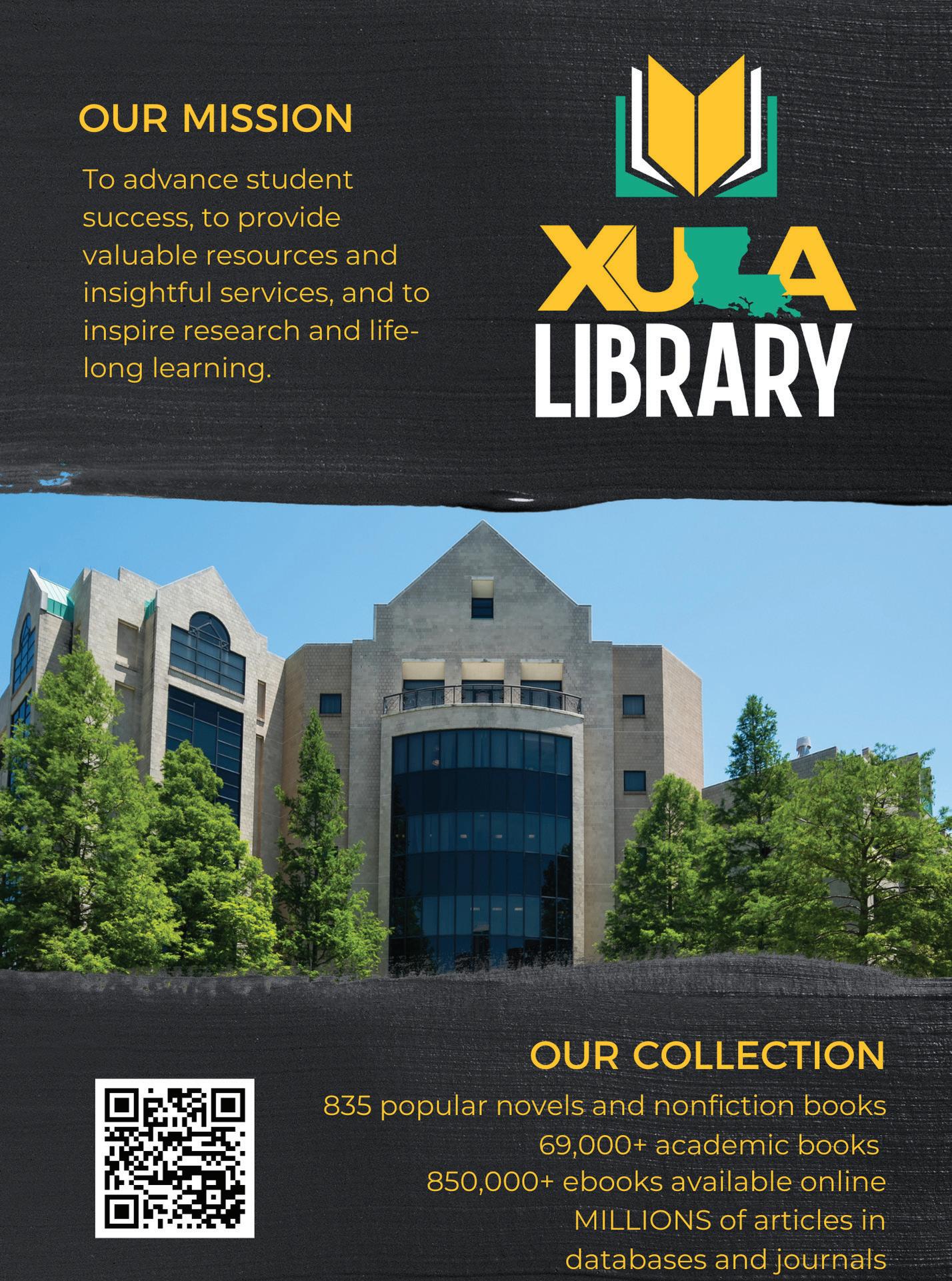
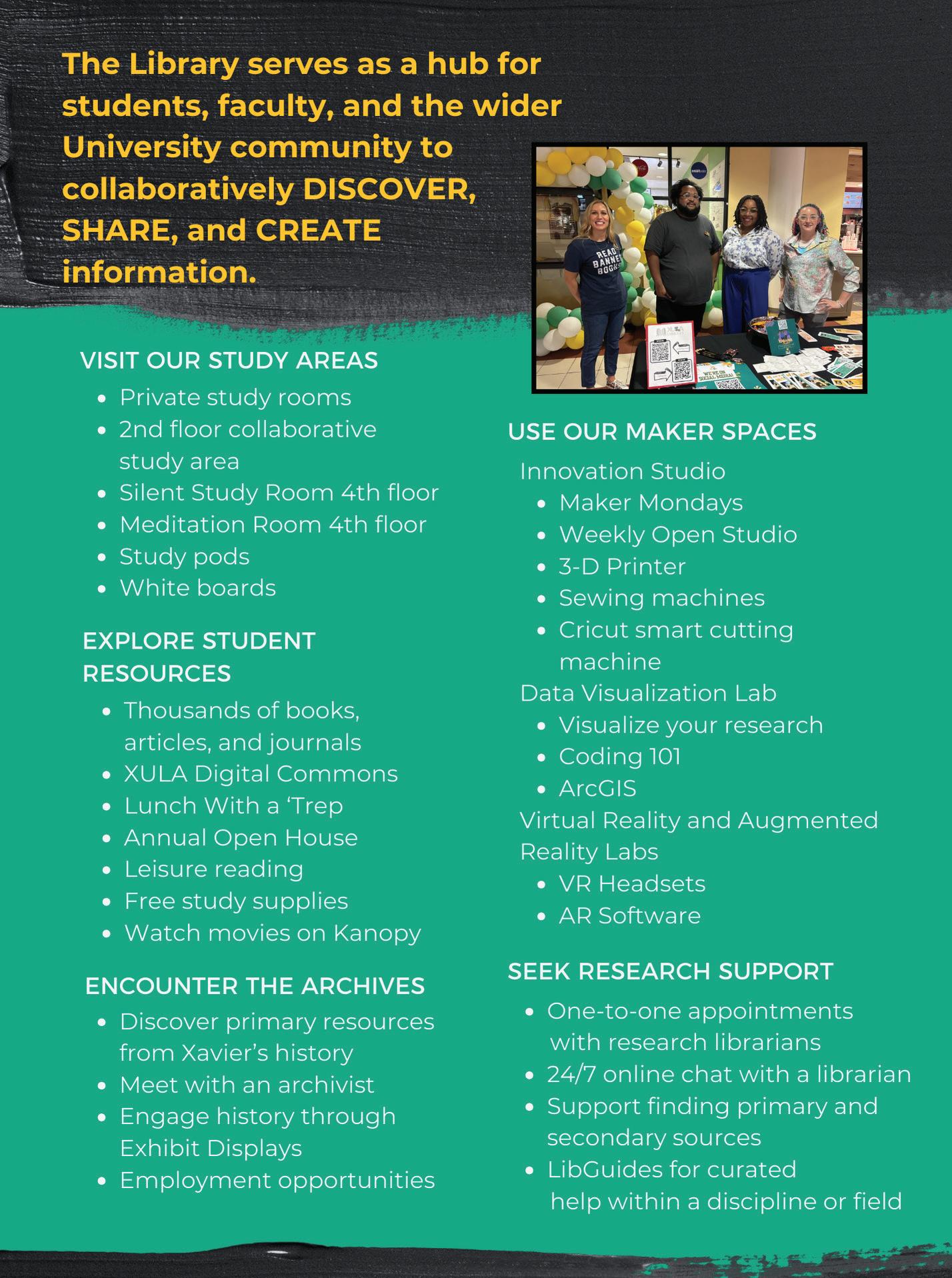
male
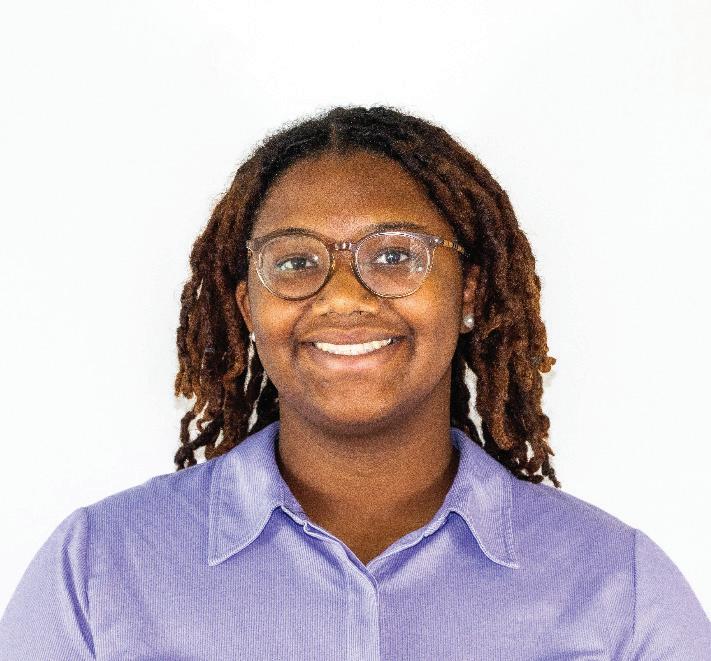
by Mylah Joseph Staff Writer mjosep11@xula.edu
Since 1976, Black male enrollment in HBCUs has been on the decline, according to the American Institute for Boys and Men. In an article released on Aug. 22, 2024, studies show multiple factors can affect Black male enrollment rates, including inadequate preparation in K-12 education, lack of representation in academic spaces, financial barriers, and personal beliefs.
Black men also question whether college is worth the financial investment and effort when other options, such as entering the workforce directly or pursuing trade careers, are available.
“When it comes to investing, is it worth the investment for Black male students?” asked Joel Munza, Xavier’s vice president of Enrollment Management.
Xavier currently has a significantly higher female student population than male students which plays a major role in the college experience for students.
“It can be seen as both a
enrollment numbers low across u.s.; Xavier strives to change that

positive and negative thing because I’ve interacted with more women at Xavier than ever before, which gives me a different perspective on how the Black experience differs for Black men and Black women,” said Cameron Jones, a senior Sociology major.
The report from Windsor and Reeves states that Black men once comprised 38-percent of all HBCU students, but as of 2022, that number had dropped to 26-percent and while Xavier is not in that percentage, the university is seeing an increase in male enrollment.
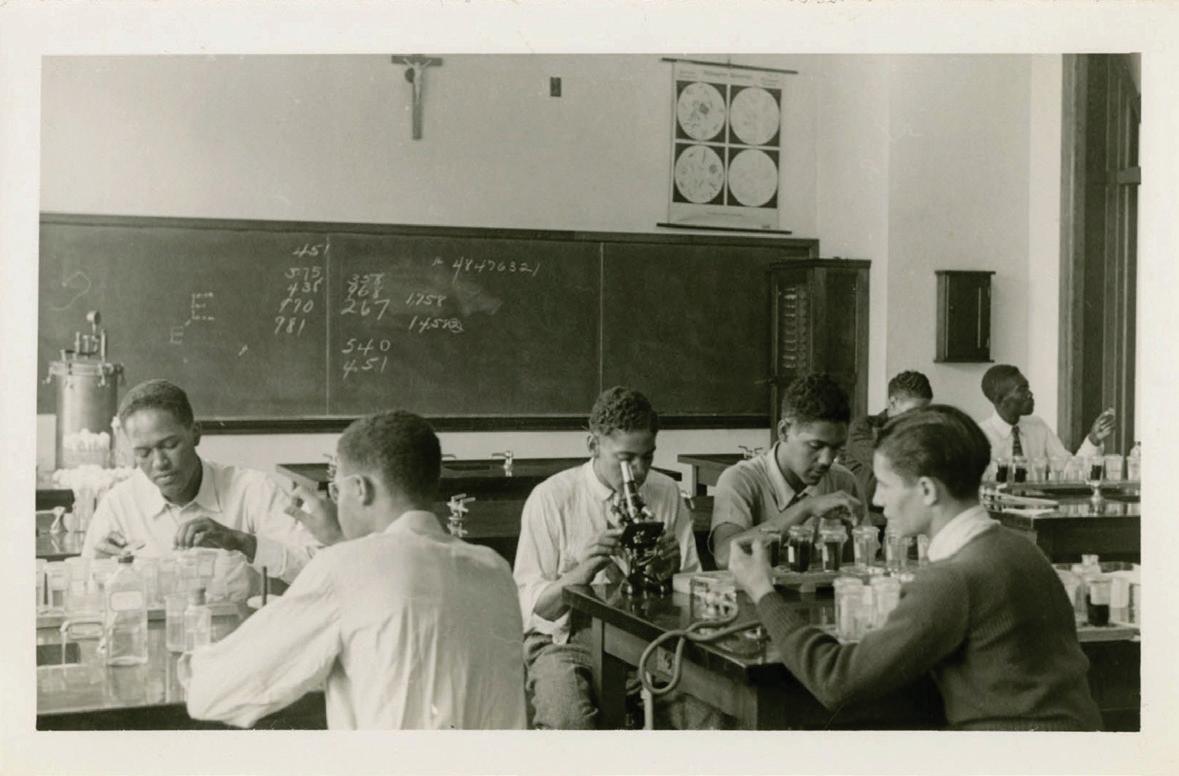
According to Munza, the male student population at Xavier was 19-percent last year, an increase from 17.4-percent in 2023.
“It’s important to be intentional and provide extra support to students while also understanding how to better serve them and meet their needs,” Munza said.
Another factor that may contribute to the small demographic of Black men at Xavier is the social aspect. Many clubs and leadership positions on campus are more geared toward women.
“If I don’t see a community valuing me, then I’m not going to be a member of that community,” said Curtis Wright, Xavier’s vice president of Student Affairs.
To address these challenges, Xavier hired Desmond Collins as the Coordinator for Black Male Engagement in 2024, in order to prioritize and amplify the voices of male students. The coordinator provides resources, mentorship, and programs like study hall while also advising the on-campus organization Men of Xavier.
“It’s an organization
committed to developing, empowering, and molding the men and boys who come to Xavier into men of service and integrity. It’s about pouring into the men here and preparing them to be servants of society when they leave Xavier,” said Amir Kelson, a junior neuroscience major and president of Men of Xavier.
The organization was formed because male students at Xavier recognized the need for a space dedicated to their development in an environment where the female student population is significantly higher.
“Men of Xavier will know they’ve done their job if the next class of men doesn’t feel like this is a female-dominated campus where their voices aren’t heard,” Kelson said.
Another obstacle the low enrollment presents is with dating, some students said.
“The dating pool feels small because many people are intertwined with each other, which can create a repeated cycle,” Jones said.
Xavier also incorporates the Magnificent Male program, which initially started
with 25 local boys from the New Orleans area who spent a weekend on campus interacting with faculty and staff while learning about college. Over the past two years, interest in the program has surged, with more than 400 to 500 applicants competing for just 100 spots.
“They come in for the weekend, and rather than centering everything around Xavier, we focus on the larger issues they’ll face, whether it’s criminal justice reform, mental health, or overall wellness. Then, we think about how we can prepare them for college,” Wright said.
The decline in Black male enrollment is a complex issue rooted in systemic barriers. Xavier demonstrates that through targeted programs, mentorship, and communitybuilding organizations, institutions can create a safe haven and pathway for success for Black men and boys. Xavier is not only addressing enrollment challenges but also ensuring that Black male students feel valued, heard, and supported for life beyond college.
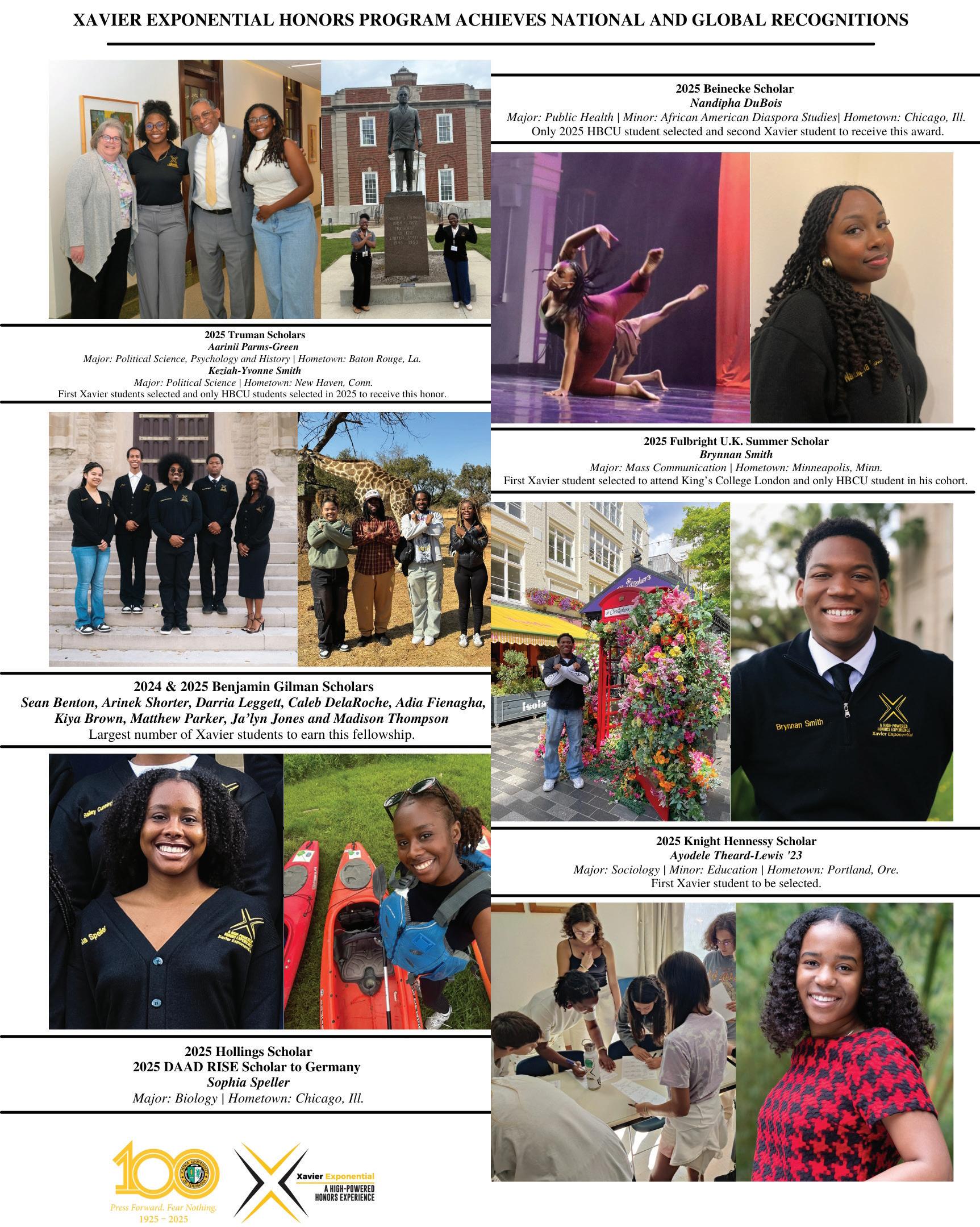
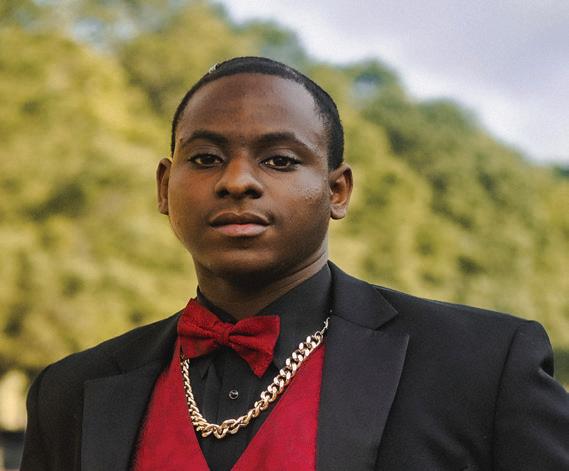
by Deon Arnold Staff Writer darnold4@xula.edu
Xavier’s rowing team celebrated its newest designation as an official varsity sport during the Spring 2025 semester at the Backatown Coffee Parlor. The team also set another first, becoming the first HBCU co-ed rowing program in the country, bringing diversity to a sport where Black athletes have historically been underrepresented.
Student athletes on the team said this journey has been both challenging and rewarding as they navigate a predominantly white sport while building a strong sense of community and resilience.
“In five years, I see Xavier’s rowing program developing fast athletes that show others in the rowing space what Xavierite excellence looks like,” said Chloe Jobin, one of the team’s coaches and head of its community outreach initiative, aimed to diversify rowers entering the sport. “This program will set an example for other HBCUs - and the sport as a whole - on how to develop more athletes at these institutions. We may
be the first, but we won’t be the last.”
The team officially kicked off its first full season on January 13, significantly expanding rowing opportunities at HBCUs. While the regattas they will compete in are yet to be determined, the coaching staff emphasized that participation will depend on athlete commitment and consistent attendance at training. The team trains daily at Bayou St. John, a historic waterway in New Orleans, where they refine their technique and prepare for upcoming competitions.
Howard University is currently the only other HBCU with a rowing program, making Xavier’s initiative a historic movement toward diversifying the sport at the collegiate level.
“Everyone’s first time in a boat is different, but for most people, the first-time rowing can be a little challenging and feel awkward,” Jobin said. “It’s important for new rowers to push through those early difficulties and focus on learning one thing at a time. There is so much to think about in rowing, so breaking it down helps your body acclimate in digestible pieces.”
The official announcement of Xavier’s varsity rowing status took place last week, drawing support from major organizations and important figures in the rowing community.
Representatives from A Most Beautiful Thing Inclusion
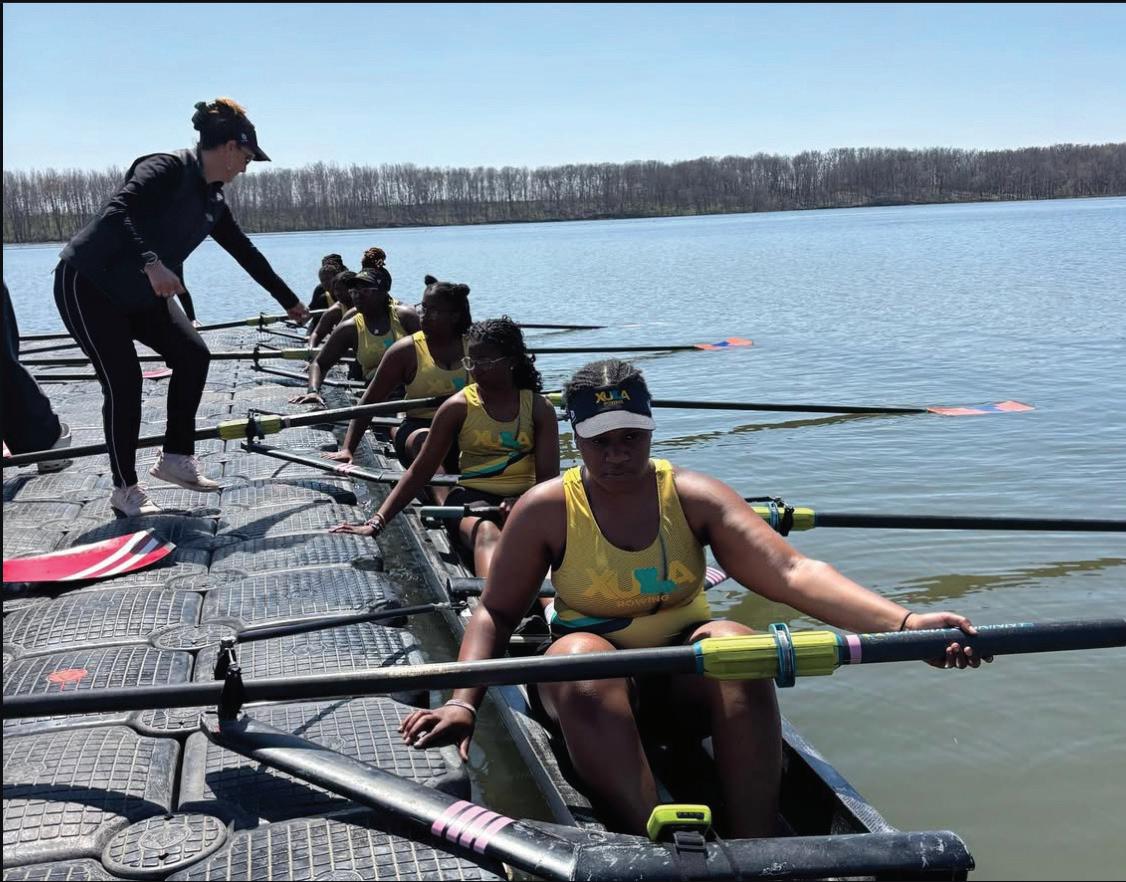
Fund, the Orange County Community Foundation, and Concept2 were in attendance, highlighting the increasing investment in expanding access to rowing for Black athletes.
The significance of Xavier’s rowing team extends beyond campus. Olympic rower Akil Abdullah, the first African American male to represent the United States in rowing at the Olympics, attended the event and expressed his admiration for the program’s impact.
“What’s really amazing about being here at
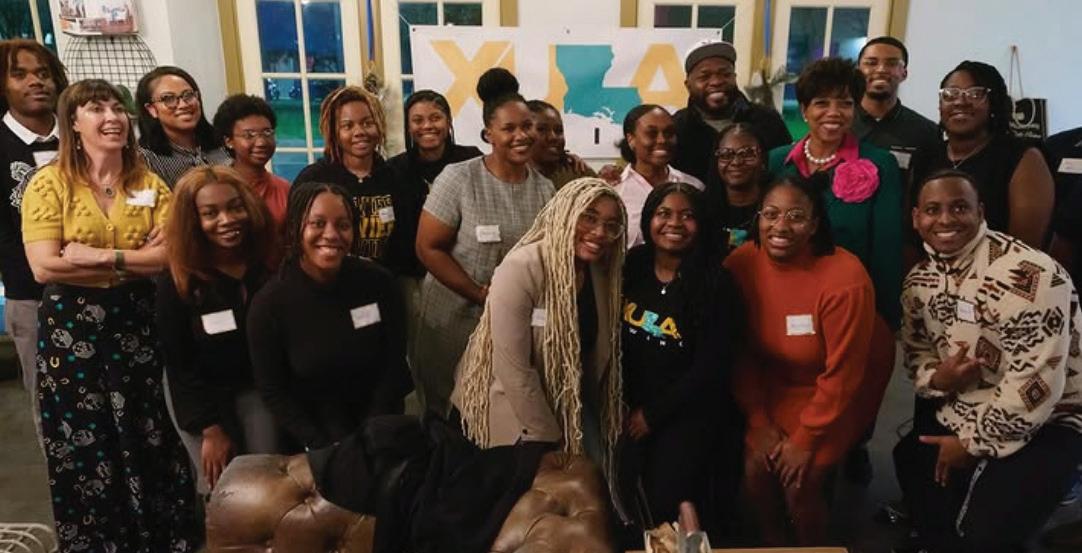
Xavier is that there are so many people who look like me,” Abdullah said. “In a lot of the spaces I was in, it was only me. Seeing this team grow and the excitement around the sportit’s incredible,” he said. Abdullah, who competed in the 2004 Olympics, recalled the struggles he faced in his career, narrowly missing the 2000 Olympic team by 33 hundredths of a second before qualifying four years later. He credited his mentor, Anita DeFrantz, as a source of inspiration during his journey.
“She would reach out to me every now and then and tell me to keep on rowing and keep fighting,” he said.
The team has continued to grow in size and recognition, providing students with opportunities to engage in competitive rowing while forming close bonds.
“Being the first is a little different. You feel like you’re not supposed to be there, but with other Black bodies in the room, they make everything better,” said Sydney Midgett, a senior sociology major from Chicago, Ill., concentrating in crime and social justice. “We know we’re making history every time we get in the boat,”
Midgett said. Students said taking on the sport has been grueling. They have learned to juggle their time with school work and practice if they are to have a successful run in the sport.
“I had to sacrifice my mornings. Practice starts at 5:45 a.m. But once you get out on that water, it’s worth it. The view is amazing, and I’ve gained so much more than I’ve lost,” said Paige Walls, a freshman biology and biomedical engineering major from Madison, Miss.
“Everybody was very welcoming. I had no idea what I was doing, but my teammates brought me in with loving arms and showed me the ropes,” Walls added.
Xavier’s rowers said this sport is about more than just competition - it’s about paving the way for future generations.
“Endurance sports don’t show quick results, but if you stay committed and aim to improve just 1-percent each day, that’s how real progress is made over time. Consistency is the best way to develop in this sport,” Jobin said.

byYouma Diabara Staff Writer ydiabara@xula.edu
Xavier Mass Communication majors were selected for the first time this year to serve as NFL Media Scholars during Super Bowl LIX. The 17 students were selected by the NFL from over 200 local applicants for the inaugural program including local HBCUs: Dillard University, Southern University of New Orleans, and Xavier University of Louisiana.
The NFL Media Scholars program was created to provide aspiring media professionals with direct exposure to the industry’s inner workings,
dedicated to fostering educational opportunities and inspiring the next wave of sports media professionals,” said Nicki Ewell, the senior events director for the NFL.
“These scholars will gain a unique perspective on the operations and storytelling that make the Super Bowl a global phenomenon,” Ewell said in a statement about the program.
For many of the students, this experience was both eye-opening and affirming. Through his project, Inside the Pressroom, Ashton Broden, a native of St. James Parish and a Xavier student, captured the behindthe-scenes look of this major sporting event.
“Being part of multiple live events is humbling,” Broden said. “It constantly reminds you to stay hungry and perform, no matter where you are in your career,” he said.
The program not only provided technical insights but also fostered meaningful
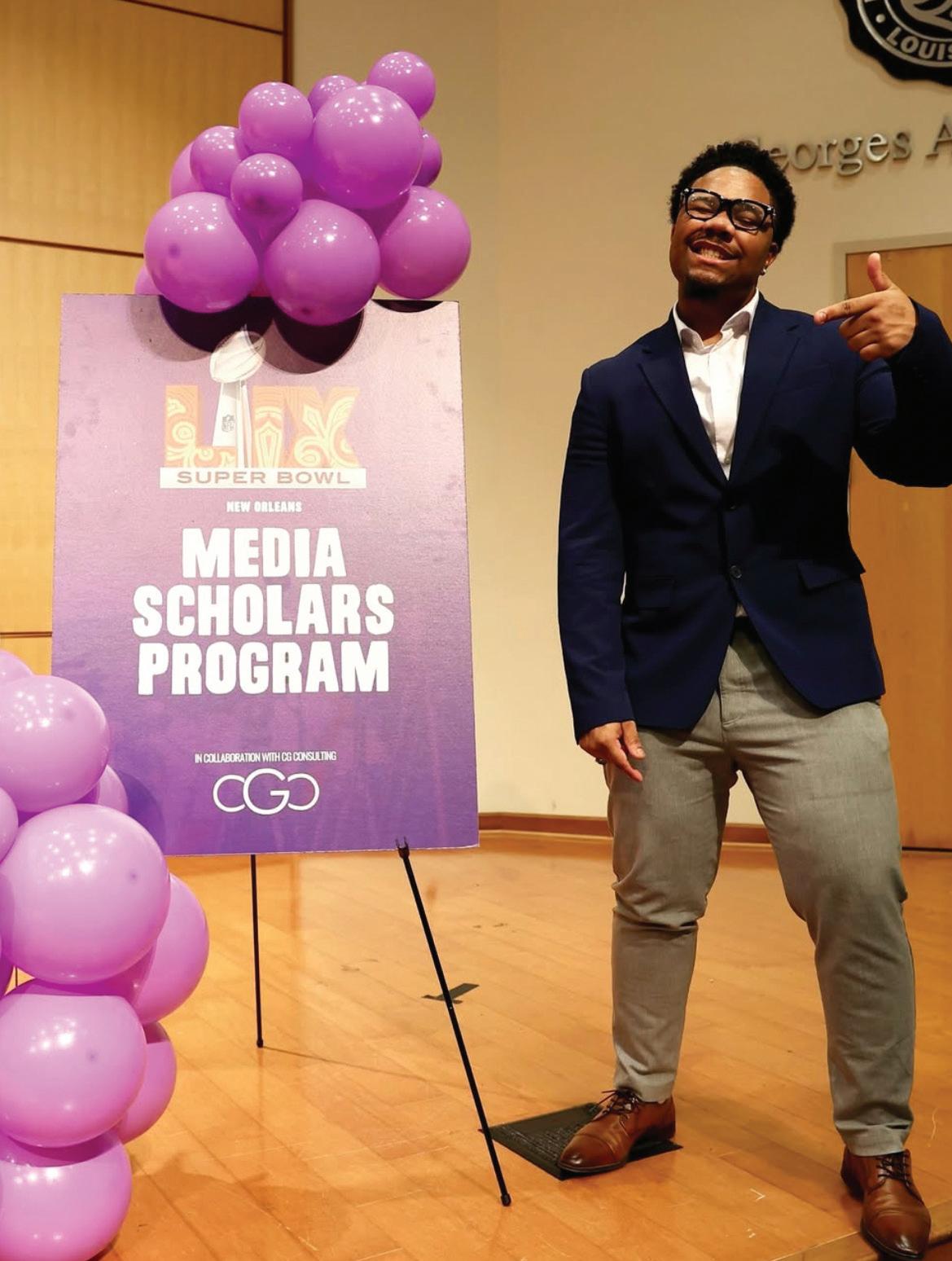
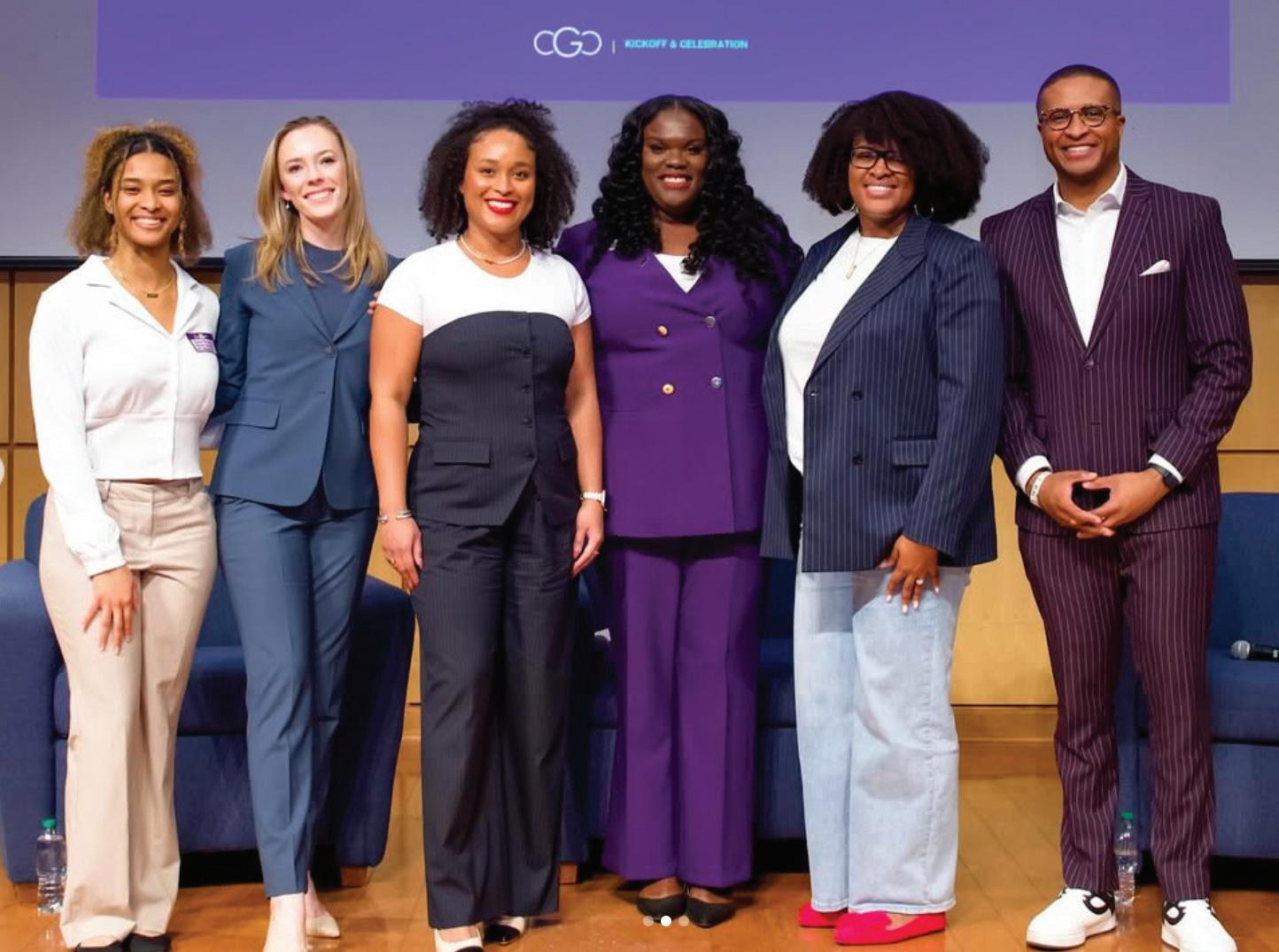
and offered students a chance to work alongside seasoned journalists, broadcasters, and content creators during one of the biggest sporting events of the year.
“The NFL is
connections with industry leaders. Kennedy Wells, a senior mass communication major from Shreveport, and Miss Senior at Xavier, highlighted the importance of authentic networking.
“
Networking is just like building any other relationship - it’s about being personable and establishing a real connection,” Wells said. Wells found that securing contacts through
mixed with the global spectacle of the event, created a unique intersection of sports and media.
“The energy was electric,” Wells said. “It pushed me to look beyond the obvious narratives and find stories rooted in the positivity and impact the Super Bowl brought to New Orleans.”
For Ravien Burns, a Pontchatoula, La. native and senior mass communication major at Dillard University, the experience was transformative. The challenge of navigating high-pressure environments was a defining moment in her professional growth.
“Opening night felt like stepping into a room full of sharks while we were the little fish,” she recalled.
However, with guidance and perseverance, she found her voice, even mustering the courage to ask NFL star DeAndre Hopkins a question during a press event.
LinkedIn and engaging in organic discussions helped her create lasting professional relationships.
“This initiative
“Being placed in rooms with the biggest names in sports and media showed us that we belong here. This wasn’t just about watching. It was about proving we have
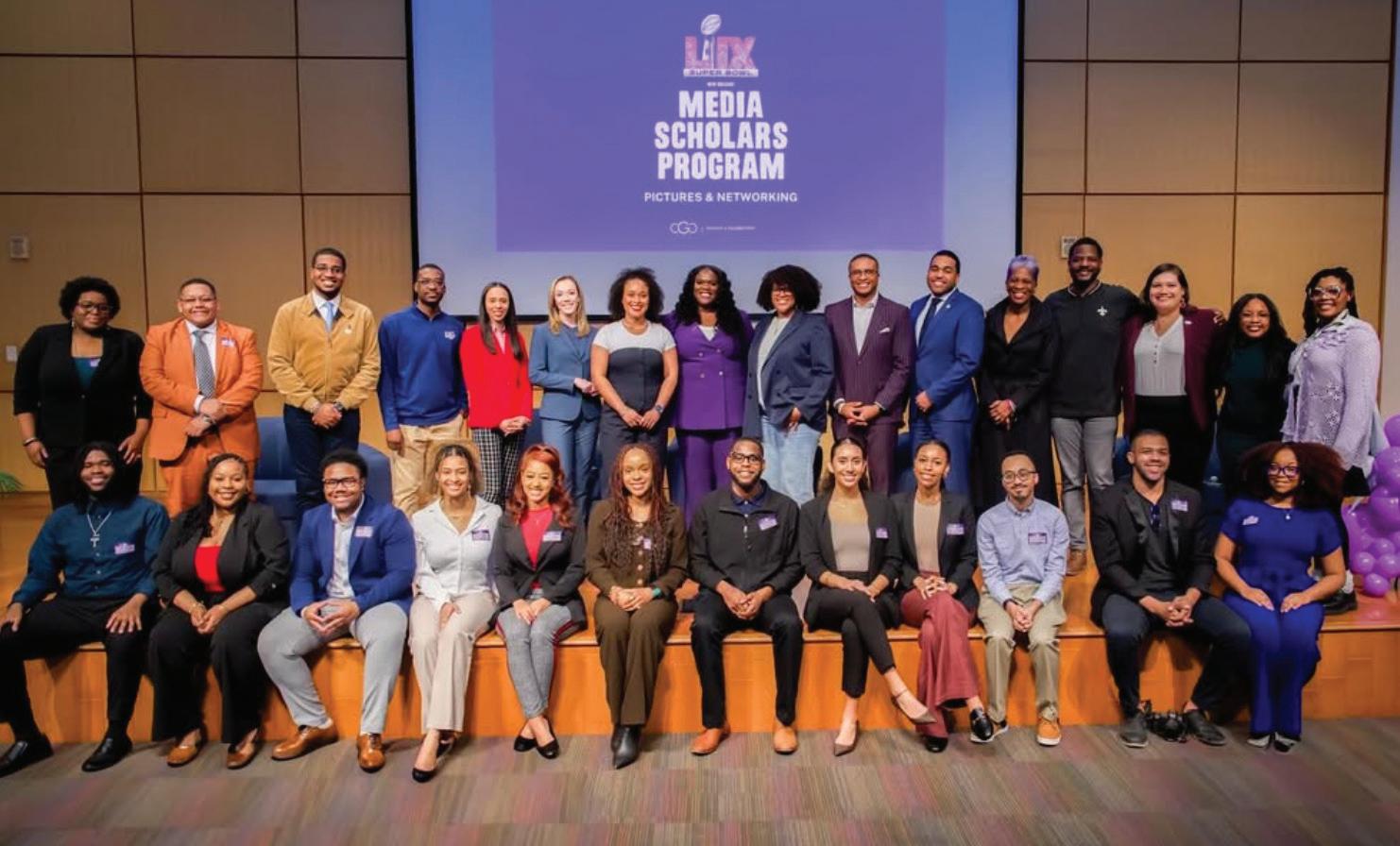
bridges the gap between academia and the professional sports industry,” said Grace Cole, the fan experience and hospitality event coordinator for the NFL.
“The students’ contributions will undoubtedly add depth and vibrancy to our Super Bowl LIX coverage.”
Beyond networking, the Super Bowl’s presence in New Orleans served as an inspiration for storytelling. The city’s vibrant culture,
what it takes to thrive in this industry,” Burns said. The fast-paced nature of sports media was another hurdle the scholars had to overcome. Tight deadlines and the need for adaptability pushed students to refine their craft under real-world conditions.
“In this industry, experience is about listening, evaluating, adapting, and acting quickly,” Broden noted. “You have to stay active, alert, and ready to perform.”
As we showcase highlights from a vibrant Xavier community, our Herald photographers captured important moments in 2025 that marked major experiences for Xavier. Among those were our student and university involvement in Super Bowl LIX in February 2025, along with visits from important public figures across politics and popular culture who visited our campus and the city of New Orleans.
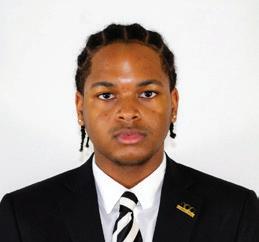
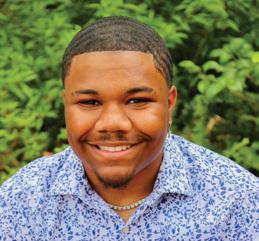
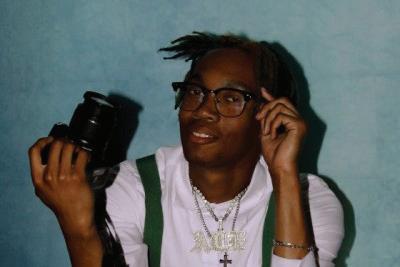

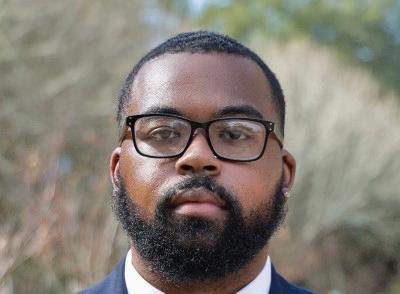
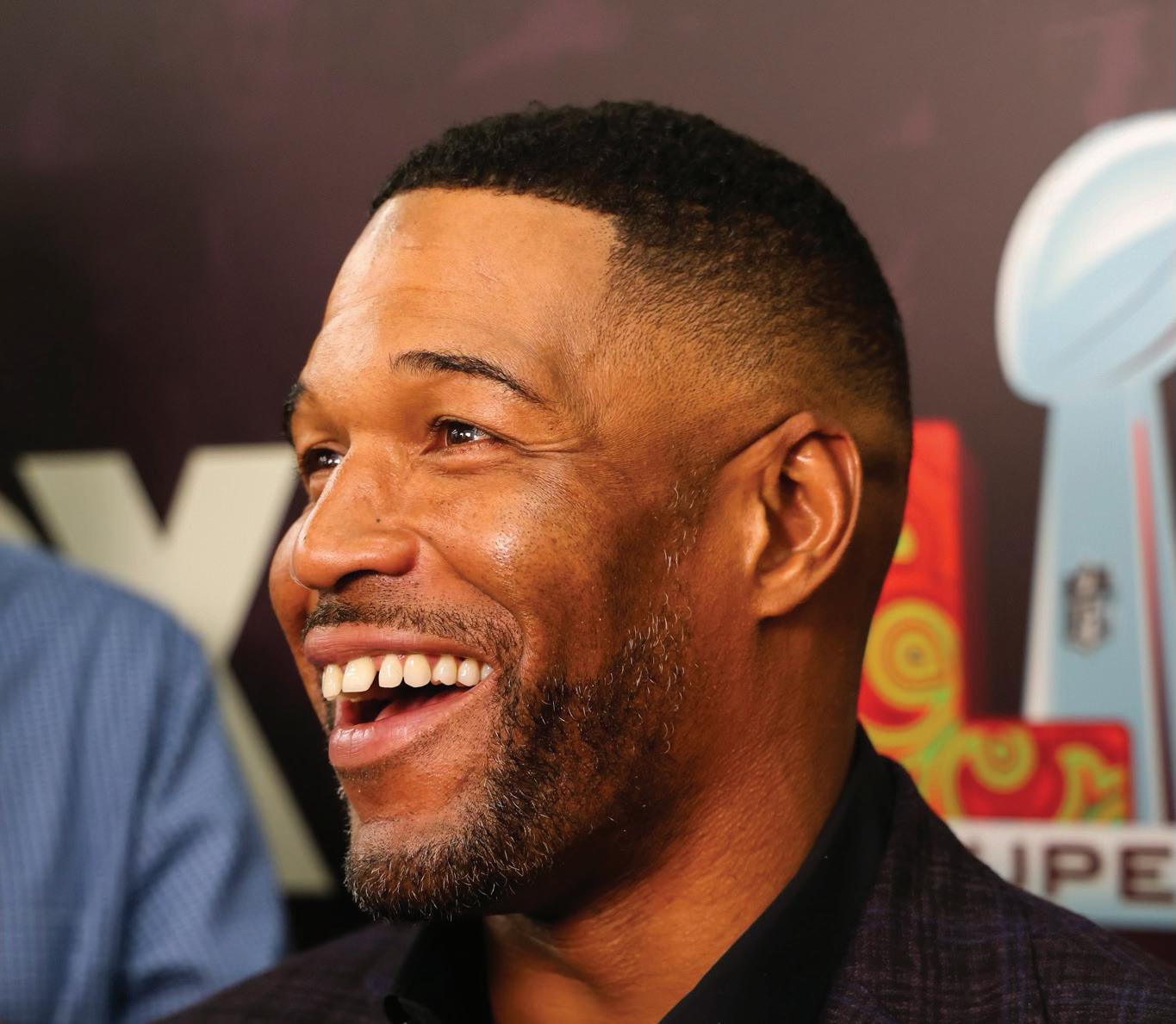
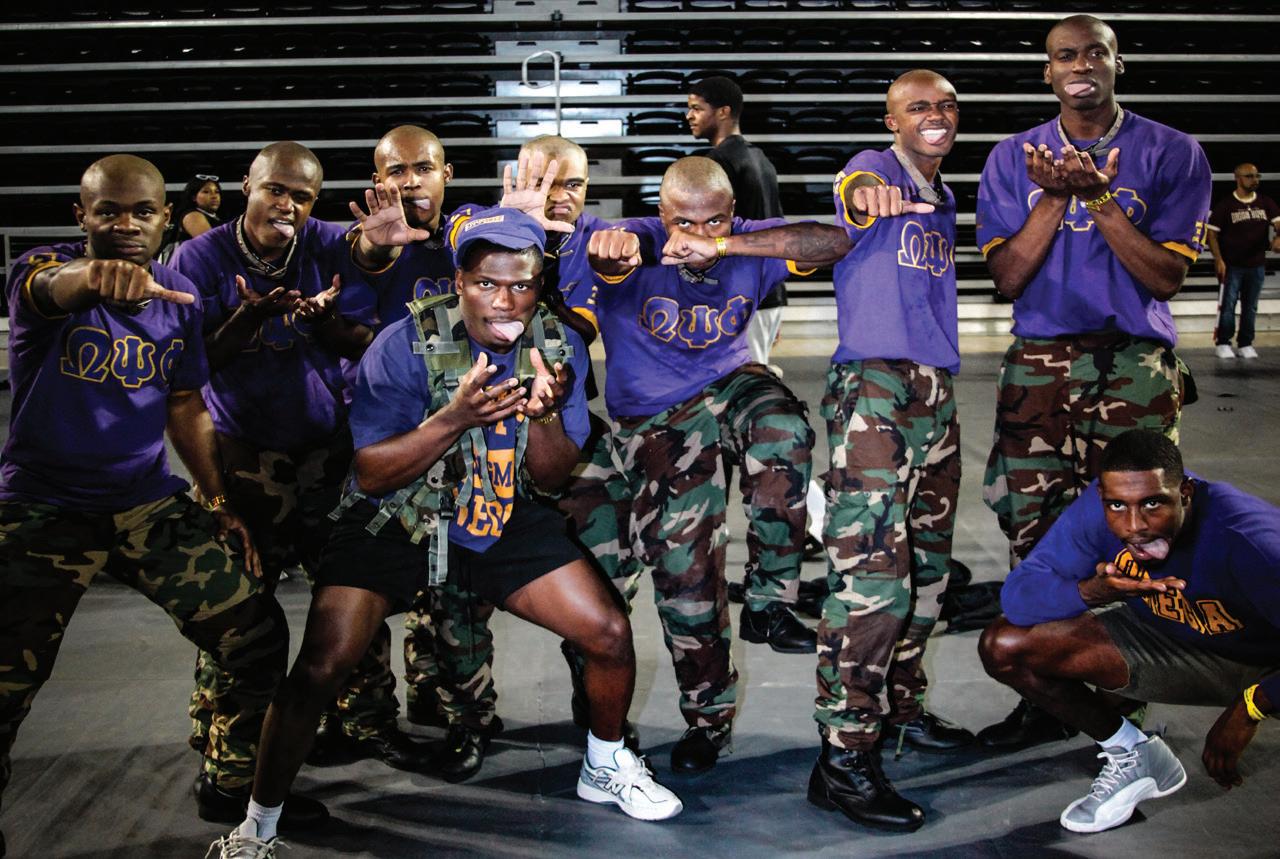
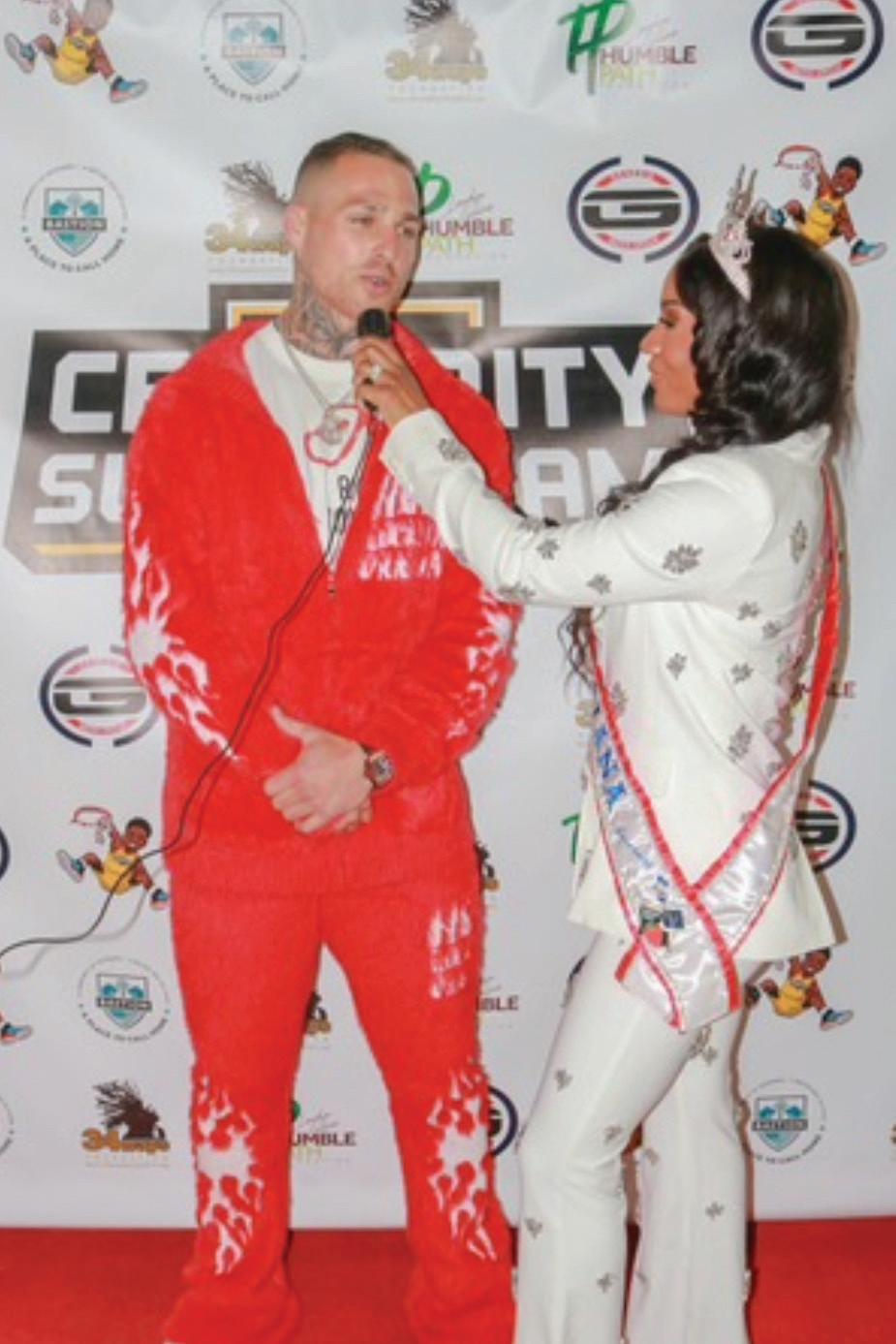
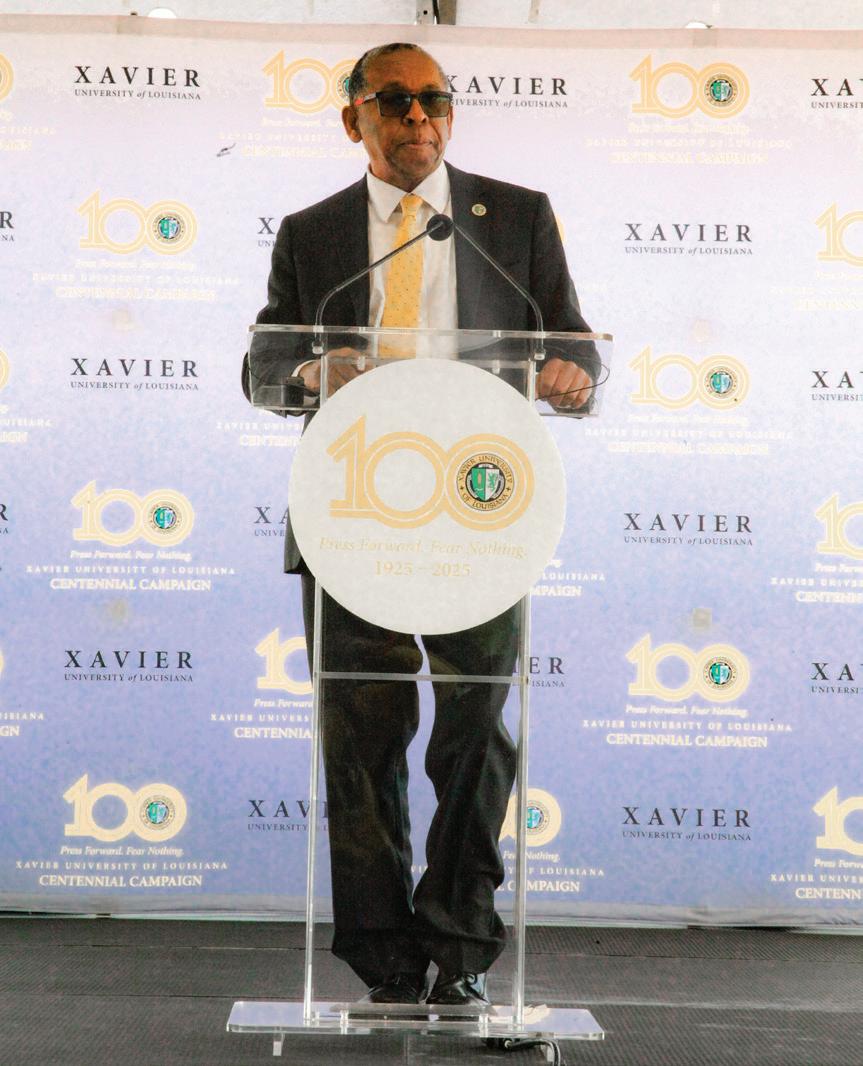
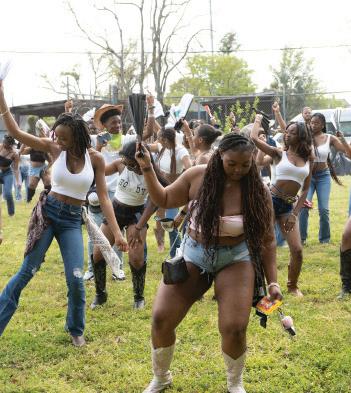
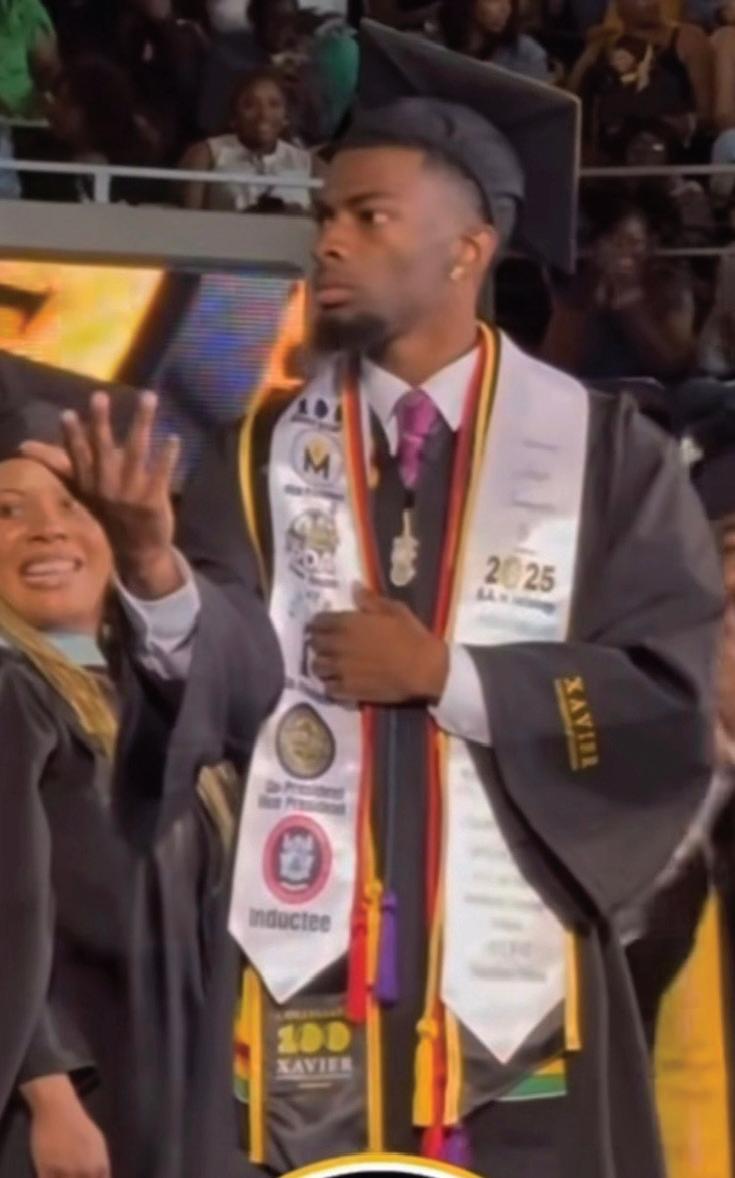
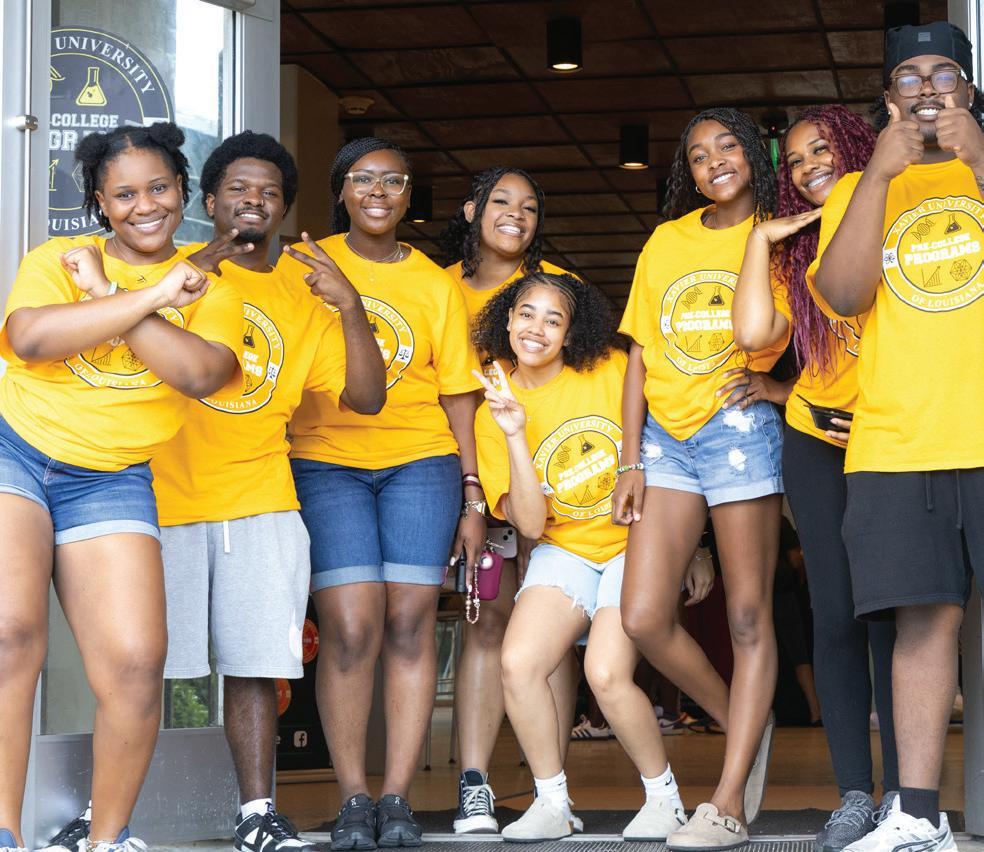
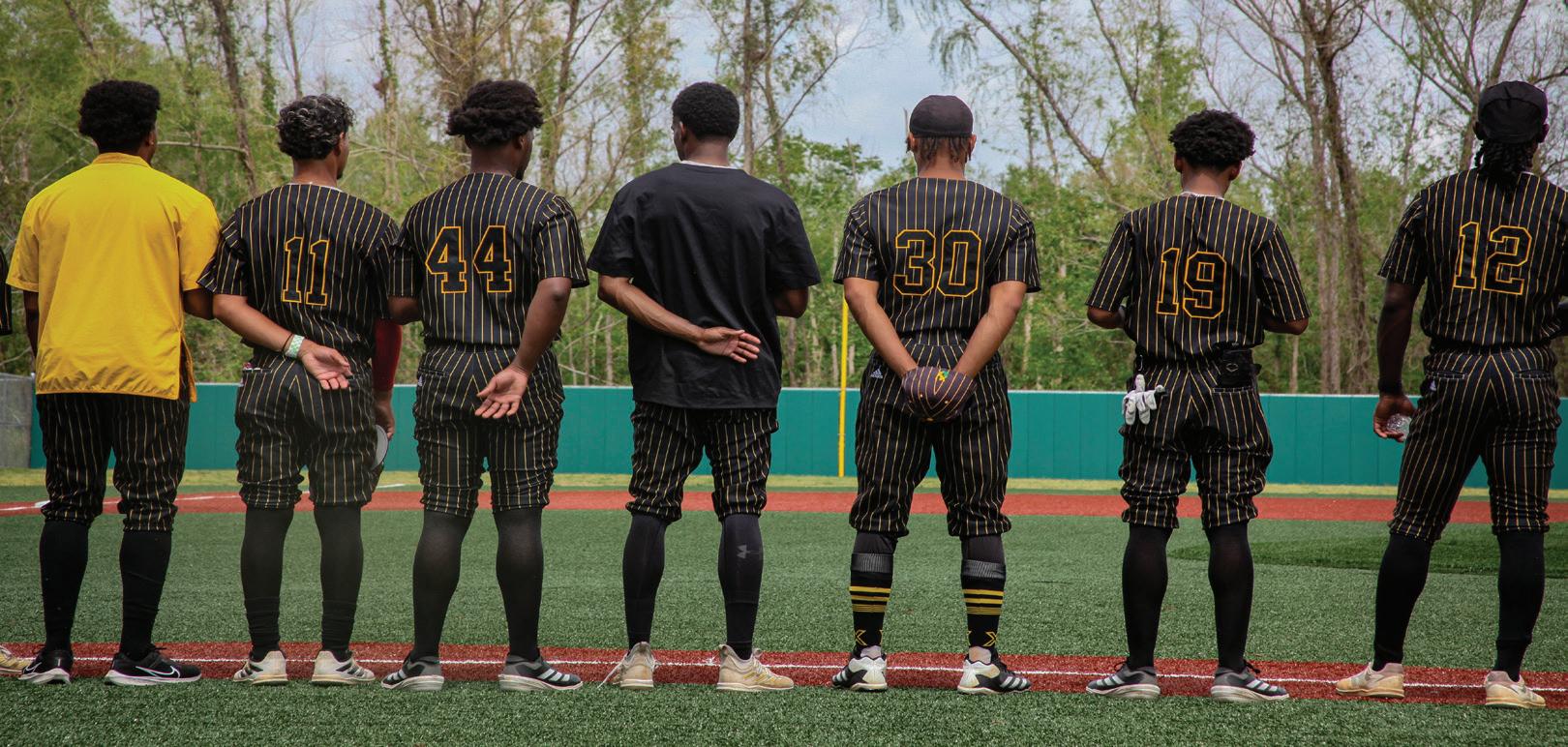
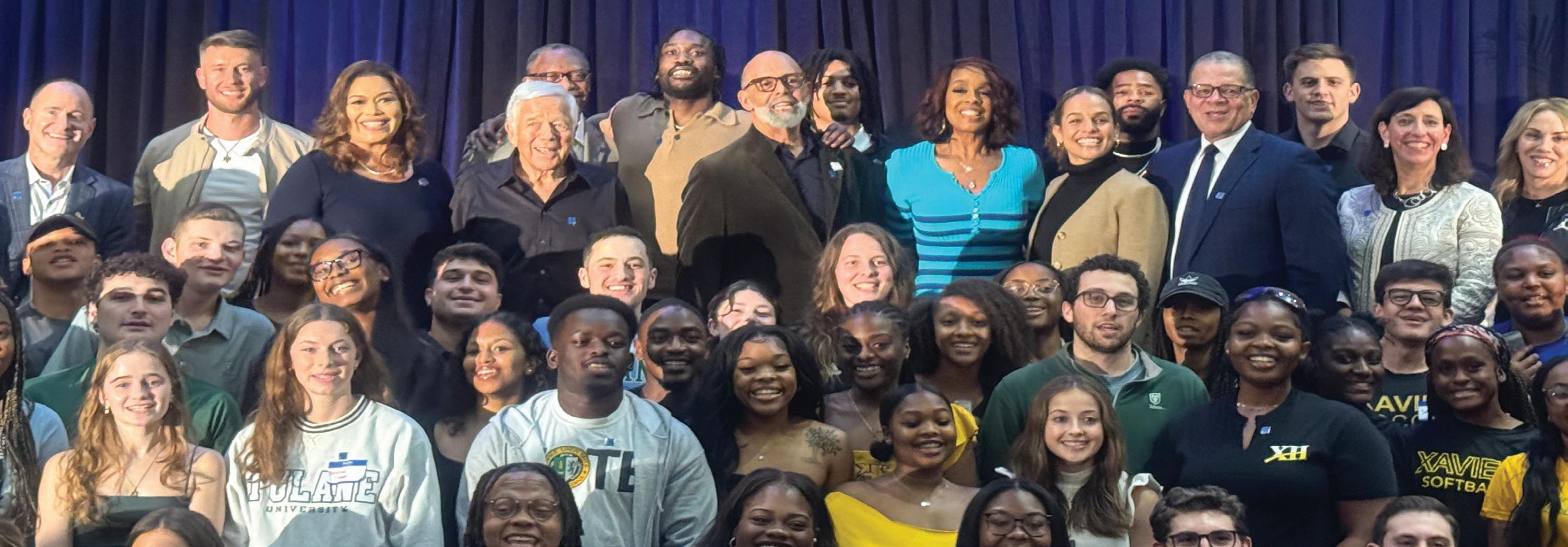
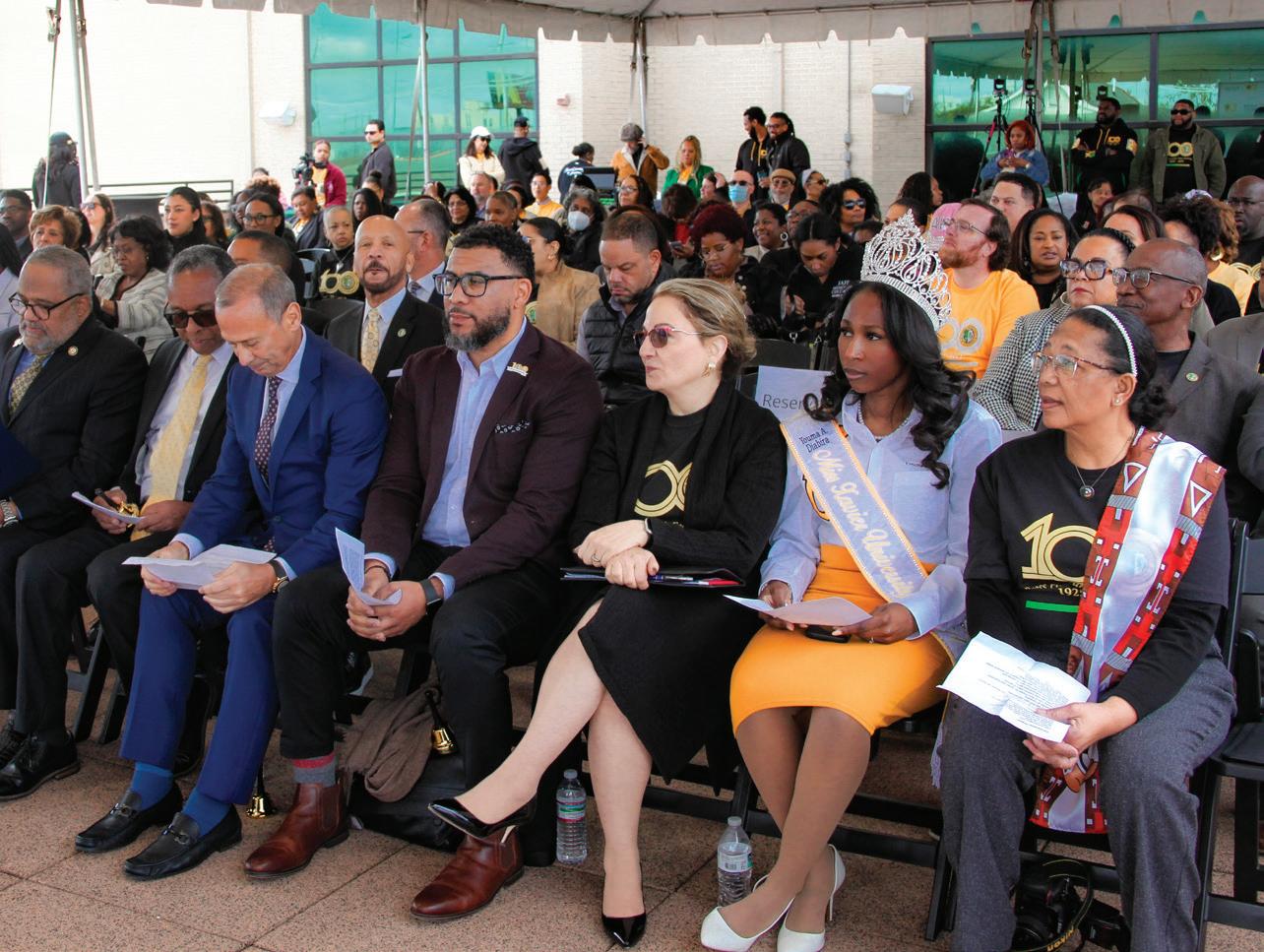

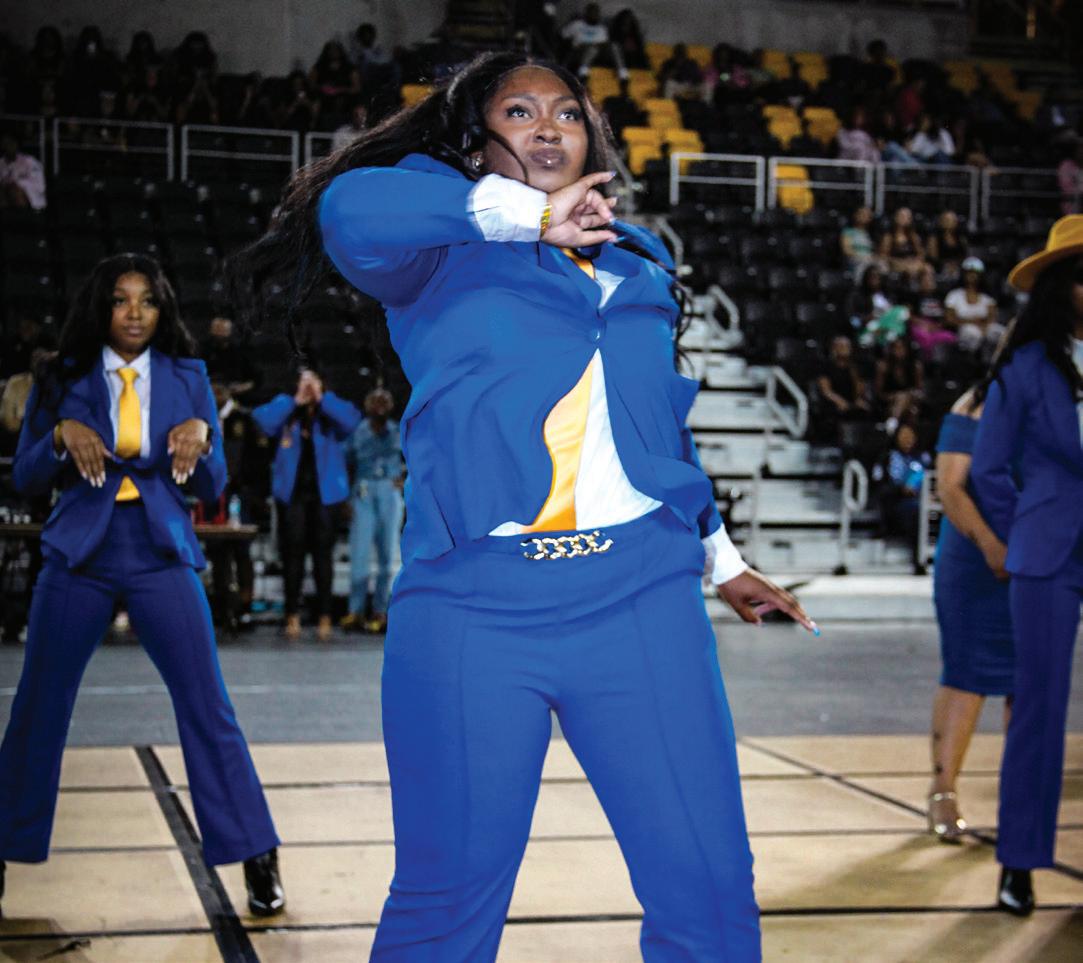
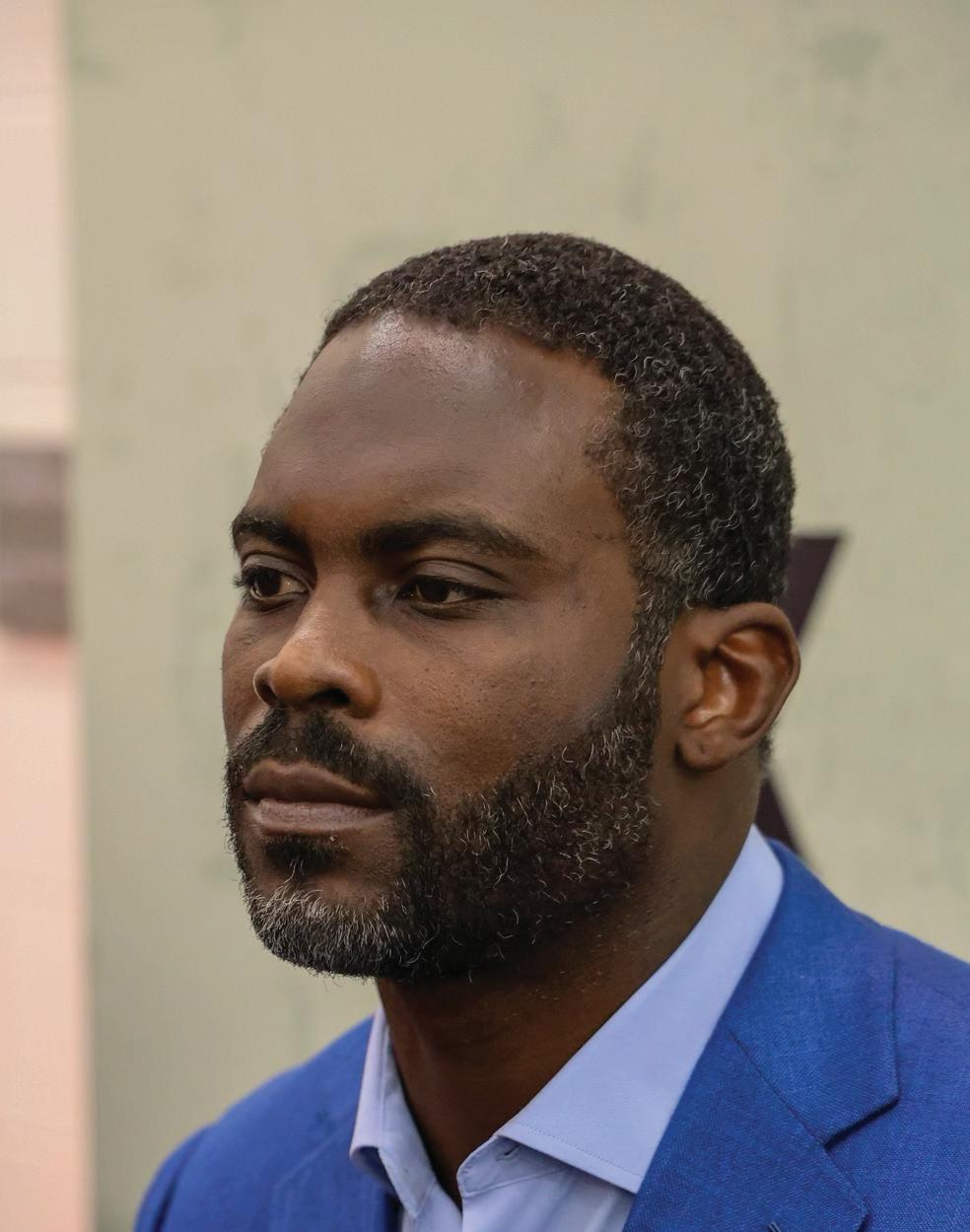
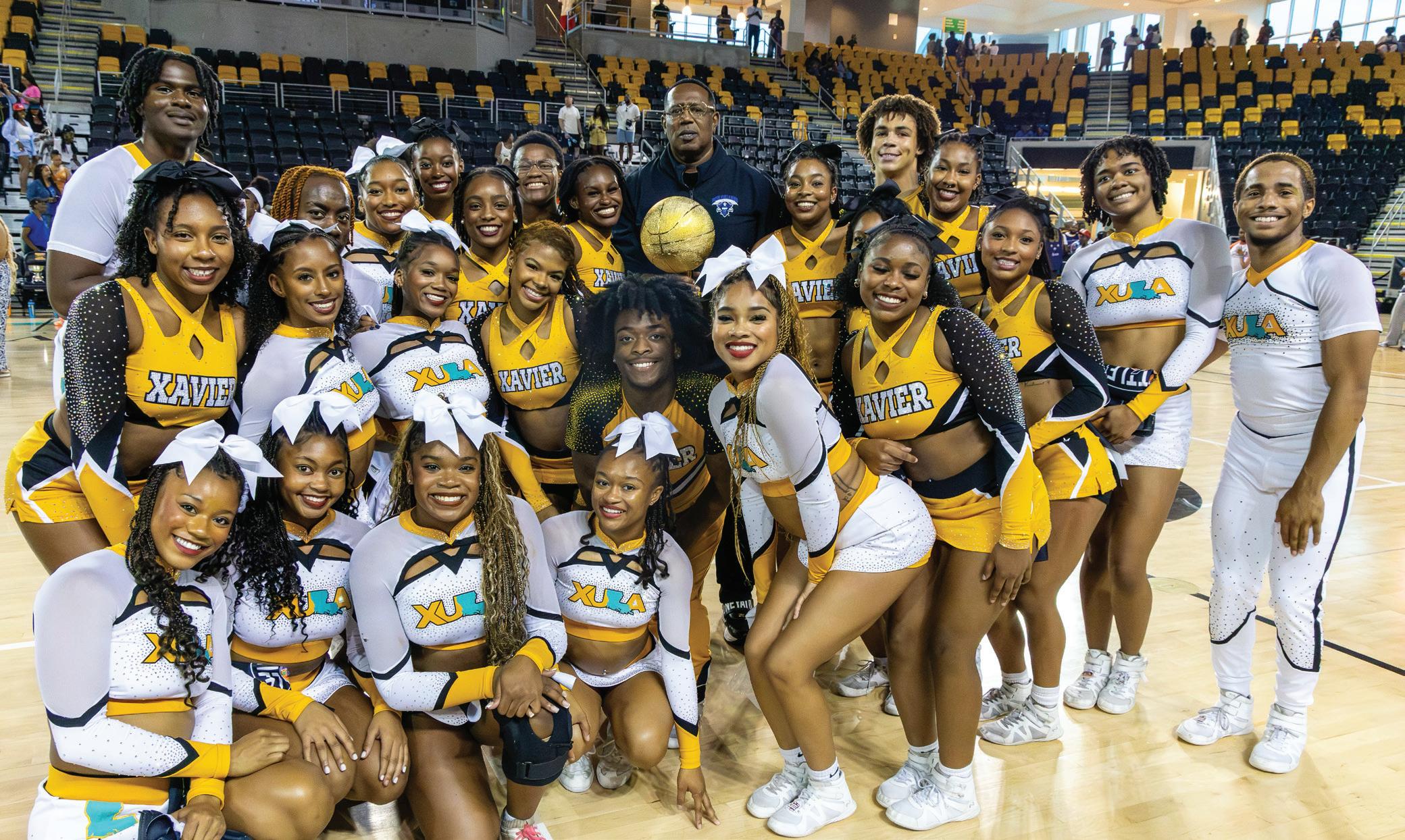
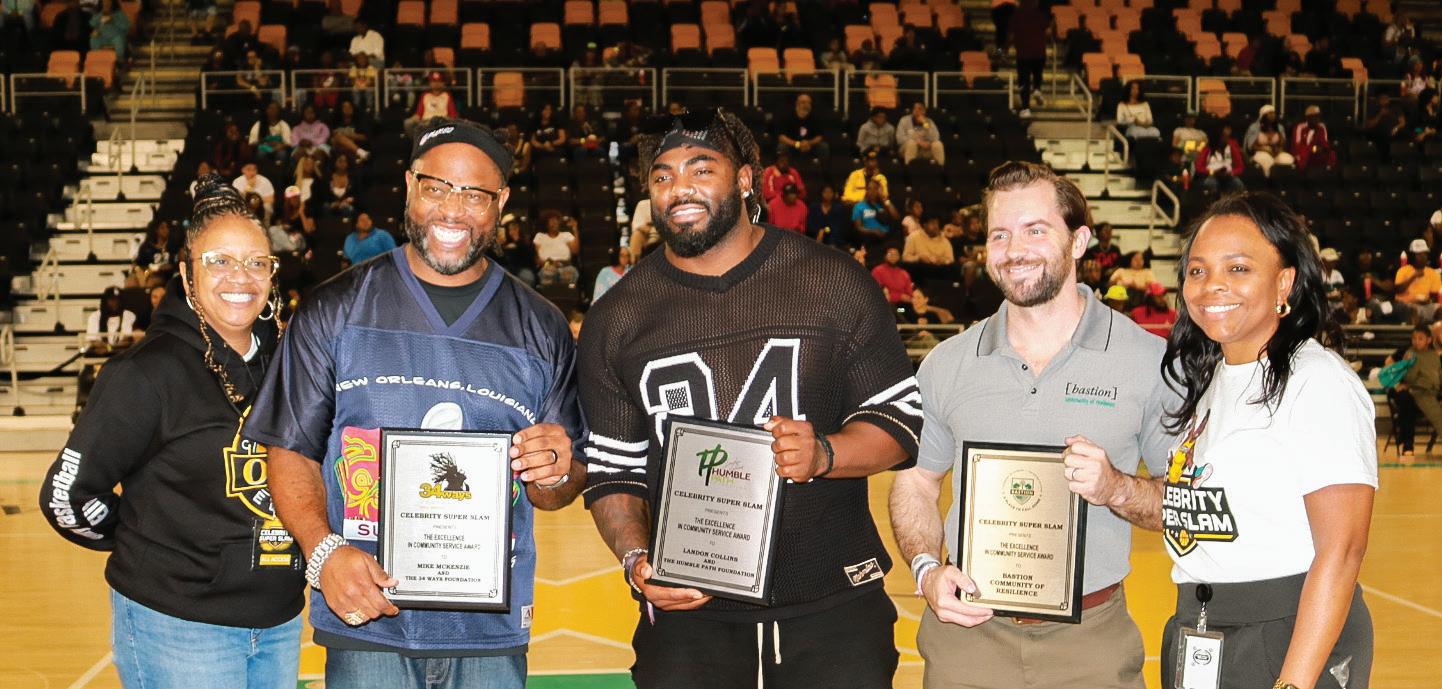
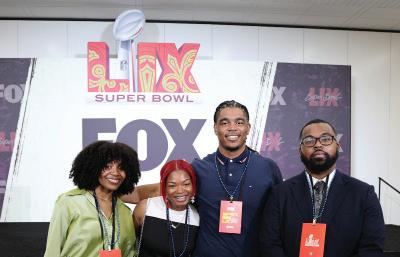
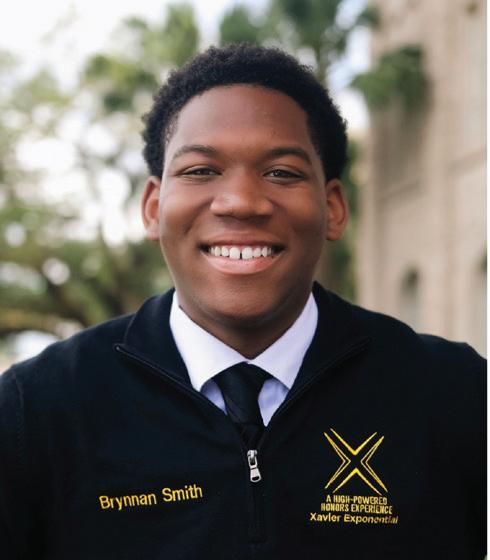
by Brynnan Smith Staff Writer bsmith51@xula.edu
This summer I was selected as a summer Fulbright to the United Kingdom where I studied Modern Britain at King’s College London. One of the unique parts of my journey is considering what it means to be an American student in the U.K. at this time in America’s history. When you walk into the U.S. Embassy in London, you are greeted by a great marble wall with a bald eagle carved into it. Looming and imposing, the wall stood as a symbol of America, grand, watchful, and owning. America’s presence is in fact felt everywhere in London from the hundreds of fast-food chains sprawled across central London, to the music played on the radio, America was never really hard to find.
I had no clue how to deal with this fact of America’s place and cultural footprint in the world witnessing it from outside of the country. For so much of my life I have been so preoccupied with questions of what it means to be Black in America, that I never had to stop and think about being an “American” and representing what this means at a time when being American is quite frankly complicated to the rest of the world. But in this international space, as soon as you open your mouth and let out a “what’s up” that is all you are. As I spoke to “Brits” I faced different responses on what being an American is – to them. To some it means geographically challenged or an inability to pick out your own country on a map. To others, it meant ignorant, loud,
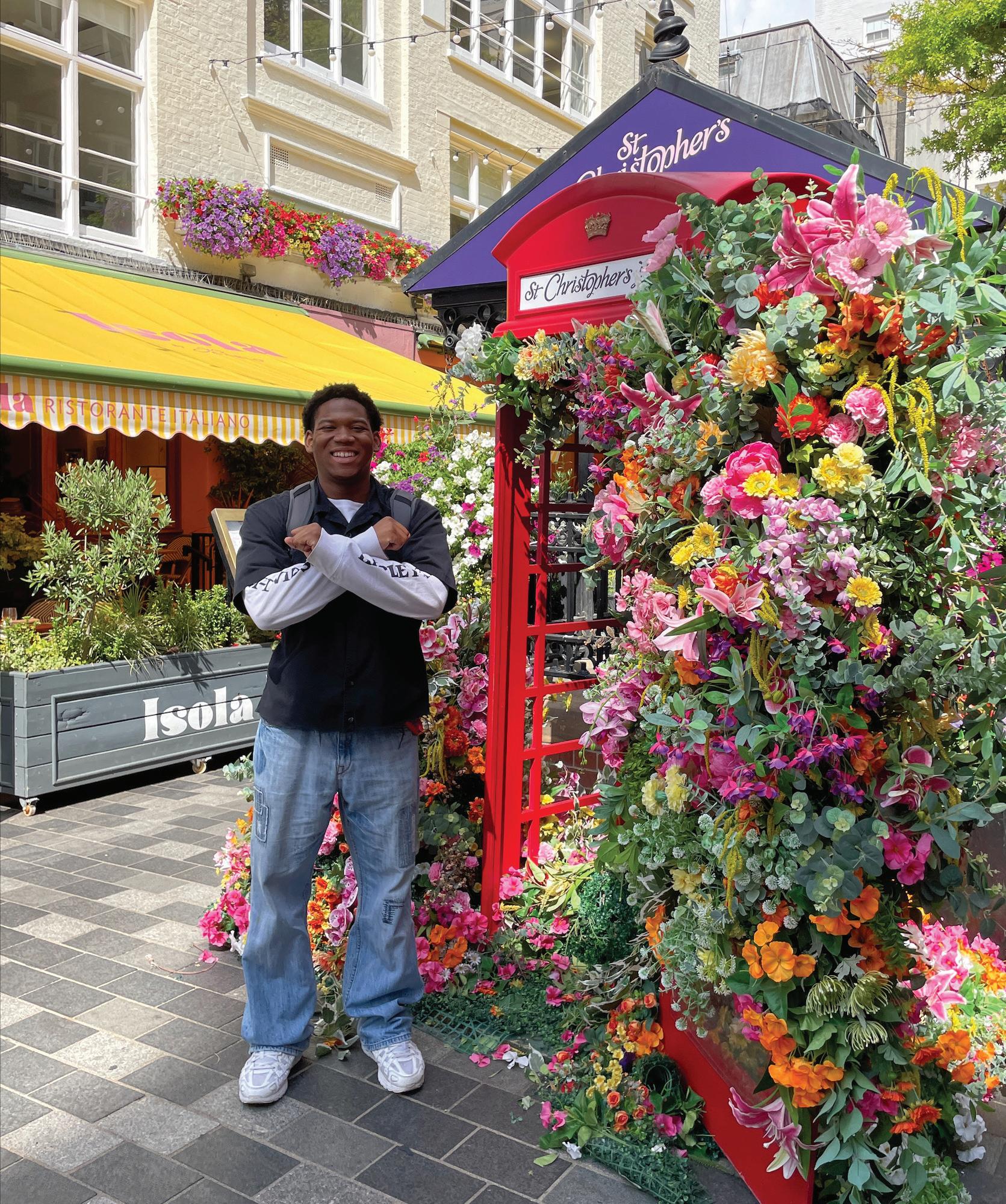
or talkative or in other words everything not “British.” For many there really was no set definition on what it means to be American, no race or culture the only thing uniting us was our accent and love for air conditioning.
At the London U.S. Embassy sits the dramatic and intense portrait of our current president. As he sits there smoldering and staring you have no choice but to recognize the juxtaposition of the moment and try to reckon with the fact of what it means to be American, right now. At a time where the U.S. government is moving to become a more isolationist nation, shutting its self, off from immigration, exchange students, and looking to close off as many trade relations as possible, I stood in a U.S. embassy as an international student holding a water bottle the U.S. government hadn’t been able to levy a tariff on – well just yet. It seemed to me that I was in direct contradiction to everything our current administration had been standing on in the last
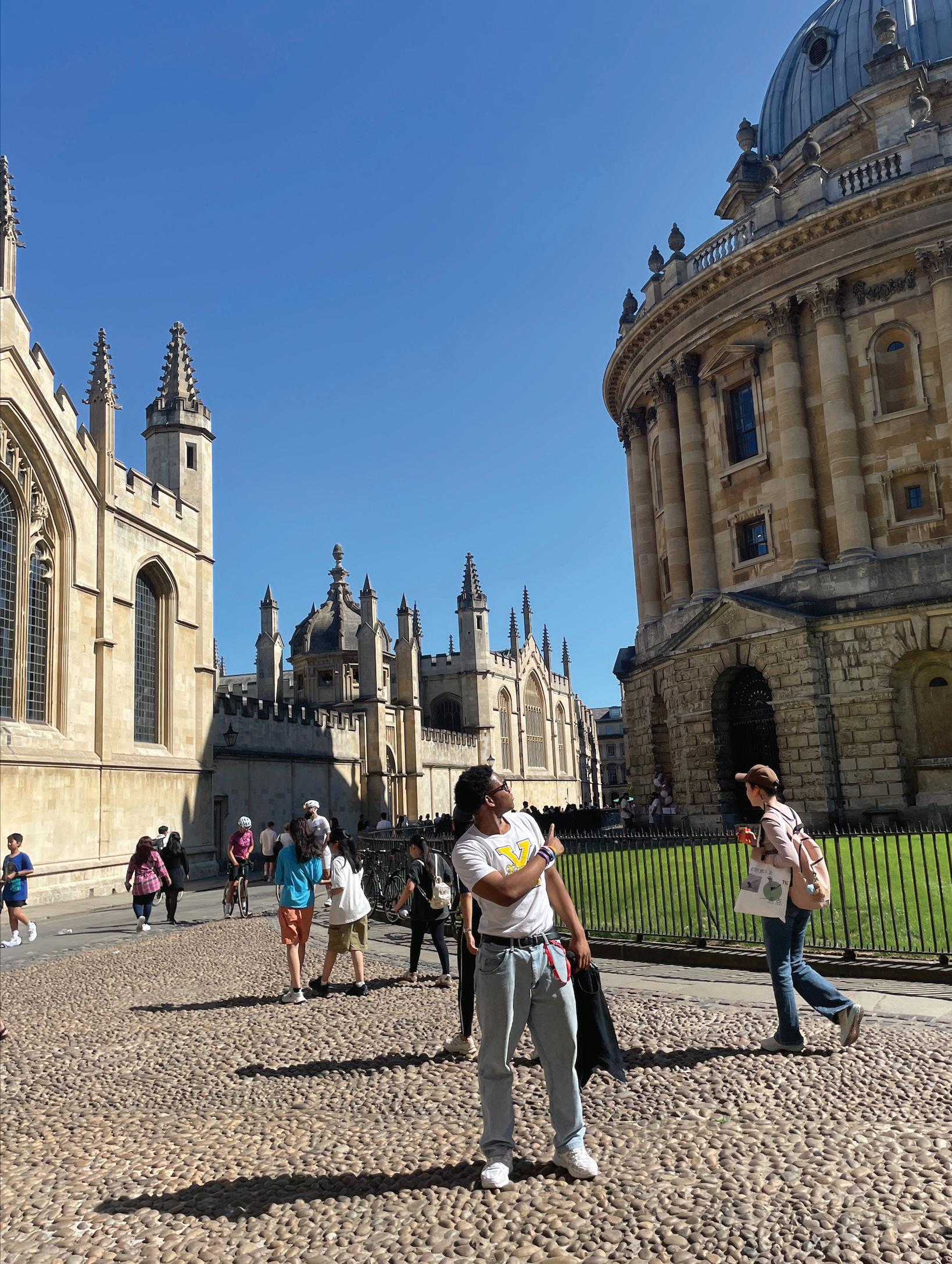
six months and it made me question, what does it mean to be American now?
From my time in England, the current view of Americans is vastly different from what our government is currently trying to create. During my time in the Fulbright U.K. Summer program, I hoped to balance that image. That we are not all patriots with one set of values and one set thought process, but we are a group of diverse people all thinking differently, even if some of us are slightly directionally and geographically challenged.
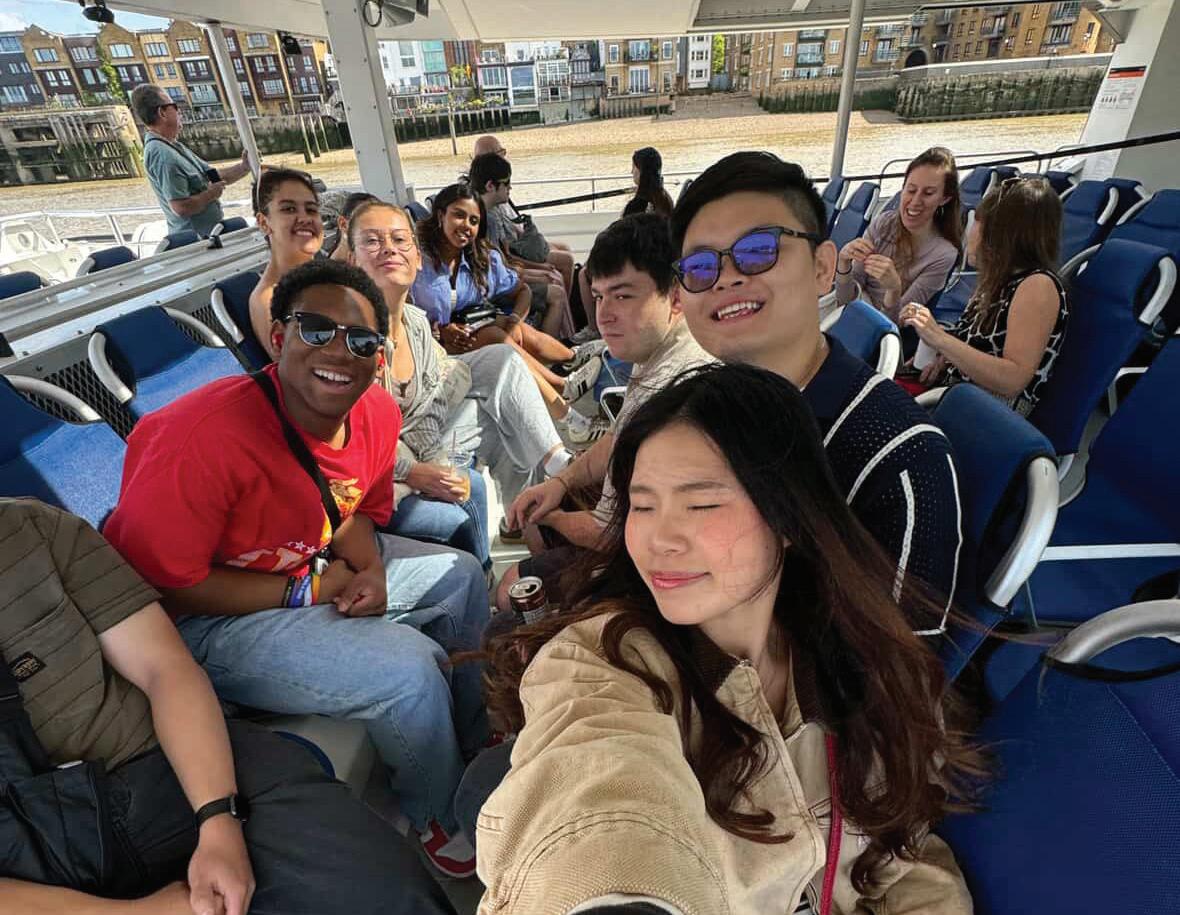

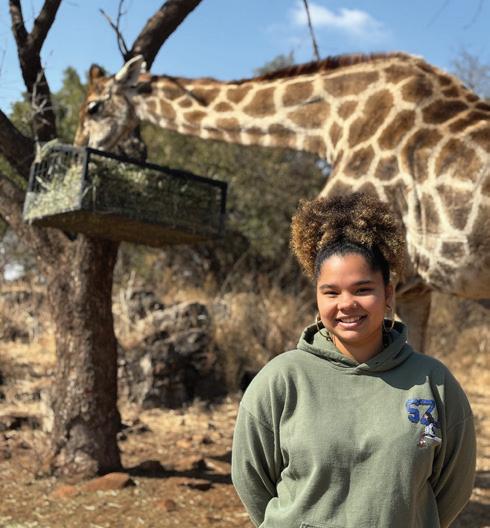
by Madison Thompson Feature Poet mthomp16@xula.edu
Africa Africa is not just the sunset.
Africa is not what the TV screens try to show you. Africa is not a continent crying out for help from the last charity advertisement you watched.
Africa is someone’s home. Africa is culture. Africa is the birth of nations, large and small, but growing all the same.
Africa is good food, kind people, and beautiful music. Africa is early mornings and long nights, filled with moments that feel timeless. Africa is freeing.
Africa is love. Characterized by the laughter that fills the streets, The songs that echo between walls, The walking to new promises of knowing more than you did yesterday.
Africa is nature. Here, the environment matters.
Animals roam freely. Energy is conserved. The world is granted the respect it deserves.
Africa is the beginning. It’s more than just the motherland. It’s the influence of culture, It has no end.
And though the TV screen may show you the downsides of a continent so beautiful, Don’t live in the media’s ignorance.
Understand that Africa is much more than what you’ve seen.
Africa is light. Africa is intelligence. Africa is growing. And yes, the sunsets are absolutely beautiful.
Madison Thompson, alongside Olivia Simpson, are the first Xavier students to enroll in undergraduate courses at the University of Witwatersrand in Johannesburg, South Africa, for an academic exchange semester under a new shared exchange partnership with the leading “Afro-politan” university on the African continent. Madison is an African American and African Diaspora Studies major from Alabama and 2025 Gilman Scholar.
